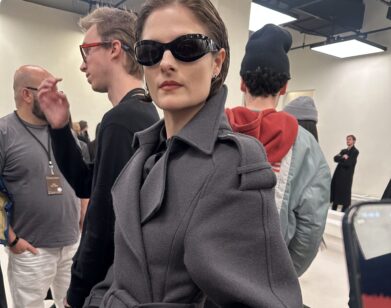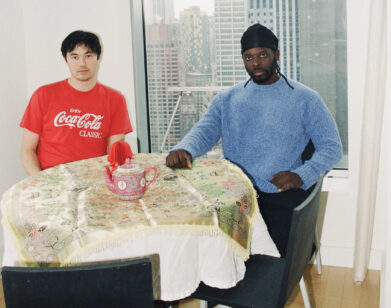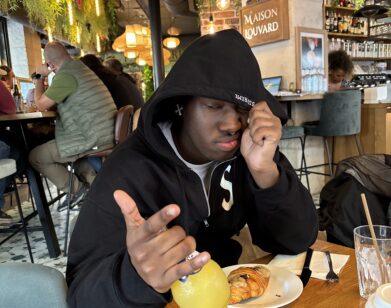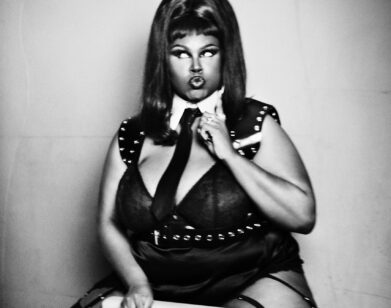photo diary
Ryan McGinley and Qween Jean Take You inside the Brooklyn Liberation Protest
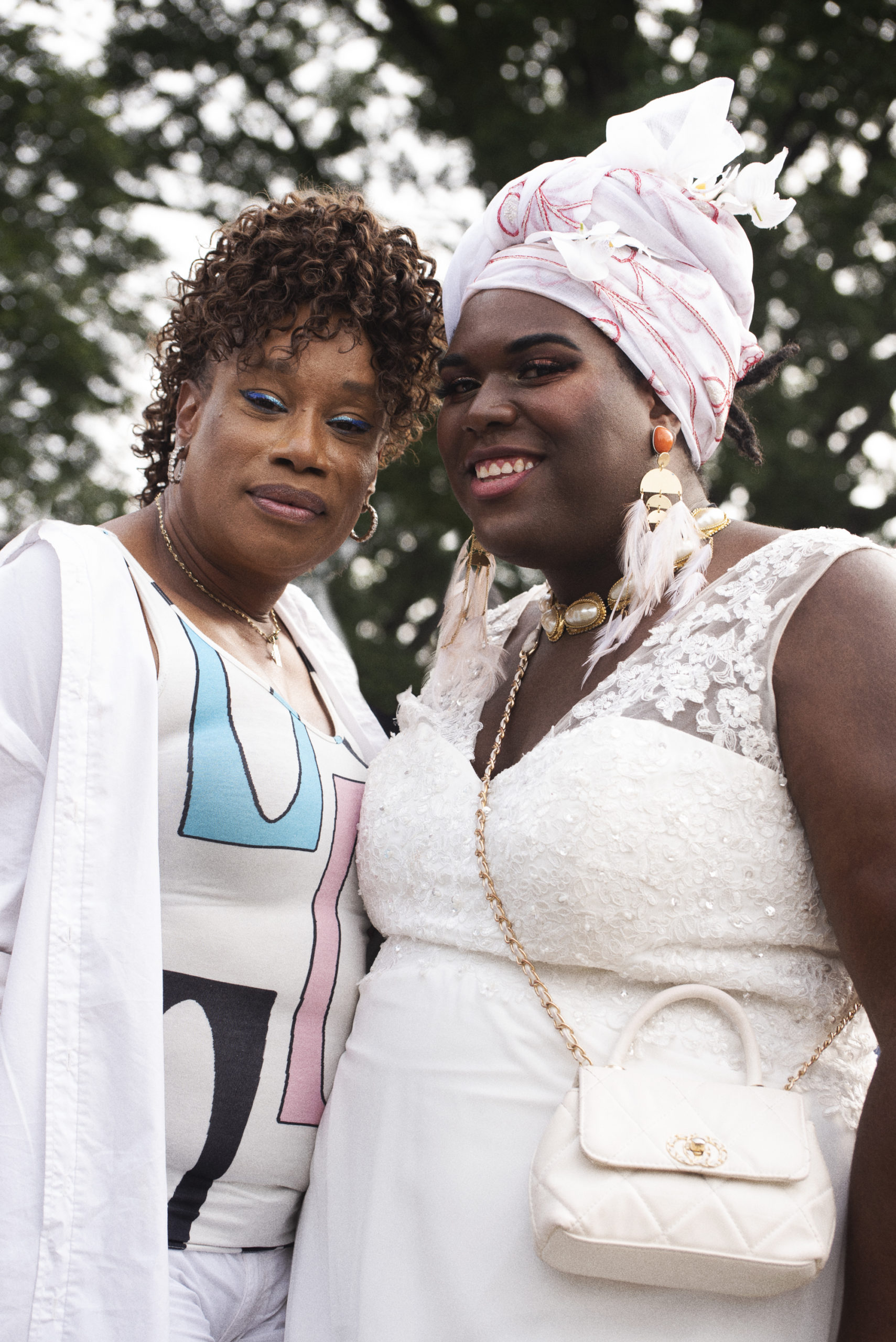
Joella Rivera and Qween Jean.
Qween Jean is not only a New York based costume designer, but she founded the Black Trans Liberation movement. Since her first protest at the historic Stonewall Inn last June, she has led demonstrations every Thursday. She fearlessly champions for Black and trans rights and makes sure everyone feels “welcome, supported, heard, celebrated.” So, in honor of Pride month, Jean talks with photographer and activist Ryan McGinley about the Brooklyn Liberation Protest for transgender youth and making tomorrow “a place where we can all be free.”
———
RYAN MCGINLEY: At Brooklyn Liberation, you’re the last person to speak. You’re leading the March. What were your thoughts about yesterday?
QWEEN JEAN:Yesterday was so revelatory. I was so grateful to be present. I was actually so grateful to be alive and to bear witness to that moment. I felt like this was quite surreal, that exactly a year before I had been a member of the community in the audience and remember how I was impacted. That really gave me my own personal marching orders, that led me to continue this language and propelled me to continue fighting. That was amazing. I thought also how exciting it was to really share a space with all of those proud, profound voices and thinkers and philosophers. To be young and so aware of what the world needs, it feels like people don’t listen. It is always a constant struggle, not one that we’re going to give up on. Yesterday felt necessary, yesterday felt like church. It felt like a welcoming in a way that I had never imagined I would feel at church. Welcomed, supported, heard, celebrated.
MCGINLEY: That’s so beautiful. It must have been so amazing to be sharing that space with some of your role models, Ceyenne and Raquel. What did that feel like?
JEAN:That’s just the easy way to put it. It felt unreal almost. I actually shared with Miss Willis, with sister Raquel, that soon after the Liberation March, I came to protest and saw her with her mask, her sign, and a bottle of water. We’d been sweating, marching, chanting for hours. I looked back and she said, “You got this.” I shared with her that it felt like the Baton Pass in a way. Not a lot of people that you admire, that you respect, are there with you in the trenches.How could I ever be tired if my heroes are out there with me? Not always physically, but spiritually like the ancestors, they are guiding, they’re giving us spiritual fortification and encouragement. That is truly the fuel that I needed at that moment. To be there yesterday with her, Miss Ceyenne, Cecilia, and Imara Jones. These are all the fearless women that I aspire to be. Leaders, mothers, caretakers, providers; all things that I really hope that one day I can become.
MCGINLEY:I know when you’re not leading a protest, you’re a costume designer. Do you want to talk about your look from yesterday?
JEAN:Yes, I was very inspired at queen Marsha.I really loved that we were asked to come in our ceremonial whites. In my language of design and my understanding of the principles of design I treat them like life, so in a way it was like storytelling. I felt I had to come adorned for this moment. That acquitted to white embroidery lace with a little chiffon slip for me. A sensible train, but something that felt regal, something that I felt Marsha would be proud of. The crown was also an organdy fabric and embroidered with red soutache and white orchids, but they didn’t last the whole march. That’s okay, I hope they got shared with the rest of the Brooklyn streets.
MCGINLEY:Were there any small moments that stood out to you?
JEAN:Oh my God, so many. Just last year I showed up, not knowing anyone there. I just showed up with my sign and when they called for the black trans individuals to come to the front, I felt alive. I really felt like, wow, this is something for us. All of these people came out of their homes and are saying that we are beautiful.I felt special that day. When I arrived yesterday, it was overwhelmingly joyous. There were a lot of familiar faces a year later, family and friends. If it felt like a dream come true. I had found a home and love in a community of people who knew my story. They had also felt the pain that I felt, but yesterday that pain didn’t define us. What really defined me yesterday was the love for one another and the compassion and the willingness to create and to provide, especially for our trans youth. It was evident from the moment I arrived until the very last moment at the park. As I was walking away, you could still hear the unbothered sound of liberation.
MCGINLEY: Right now in America, there are a lot of anti-trans bills that are trying to be passed and are being passed. Do you have any advice on how somebody who’s reading this can help be an ally?
JEAN: This question resonates with me a lot as someone who grew up in the South. I grew up with the teachings and the overarching expectations of the people living in the Bible Belt. I still feel that now as an adult outside of the Belt. I can’t stop noticing all the fallacies, the incongruences, the disparities, the overall corruption. Somehow, we are the ones that are listed as collateral damage. We’re still fighting to live. They’re not fighting for us, and it shows, and it hurts. Over 180 anti-trans bills, that is sad. I don’t really understand why they don’t love us. I don’t understand how they feel that we don’t belong. But we do belong. Yesterday’s action was an indirect response to let every child know that it doesn’t matter where you are, you belong. You have a network of people that will love you unconditionally. Even if the very people in your own house, even if those who gave you life are struggling to see your worth and your beauty. Tomorrow is something that we all have to work for and I don’t want my tomorrow to look like yesterday. Tomorrow has to look like myself, it has to look like you, it has to look like a place where we all can be free. Yesterday felt like the start.
MCGINLEY: Beautiful.

Raquel Willis.
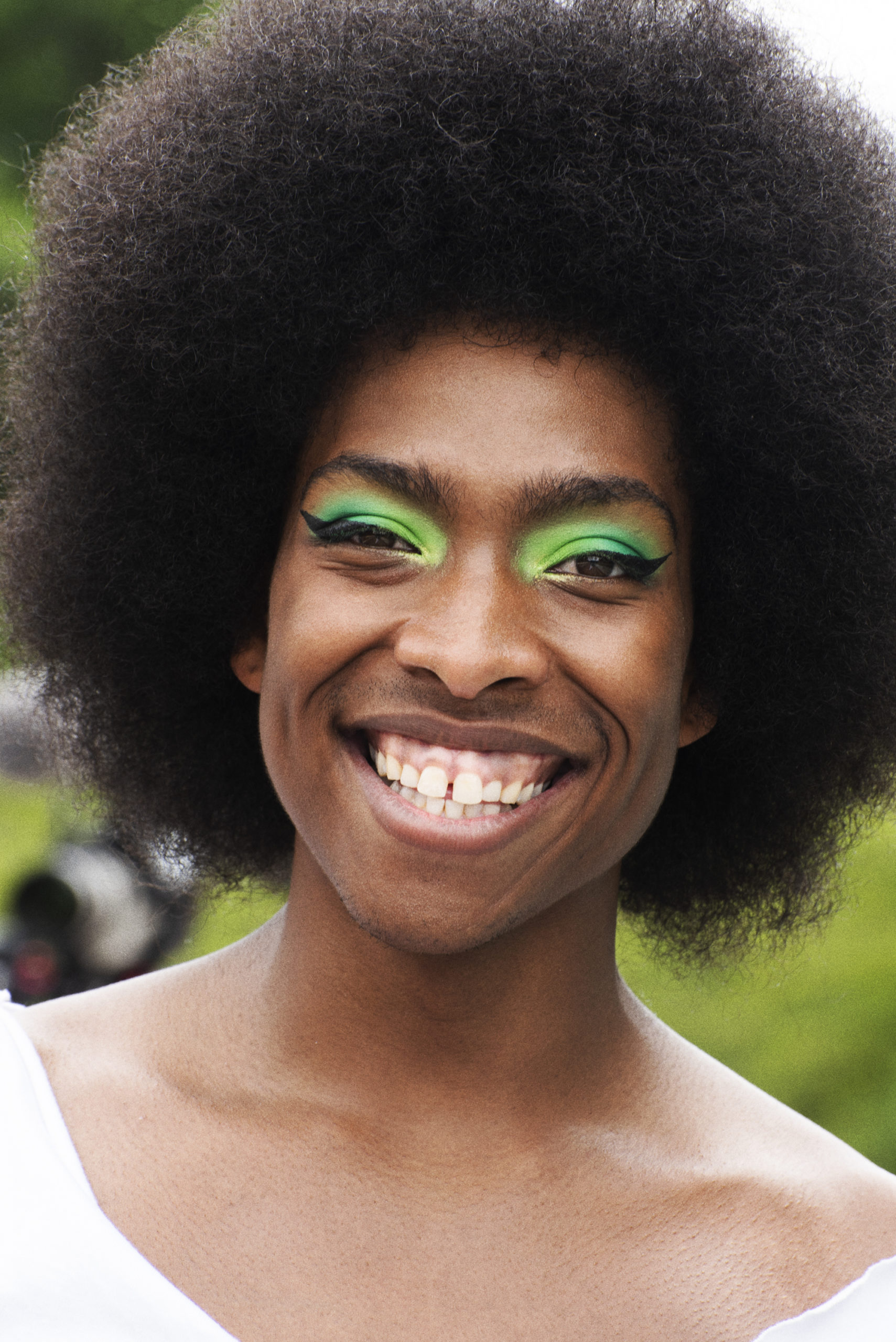
Junior Mintt.
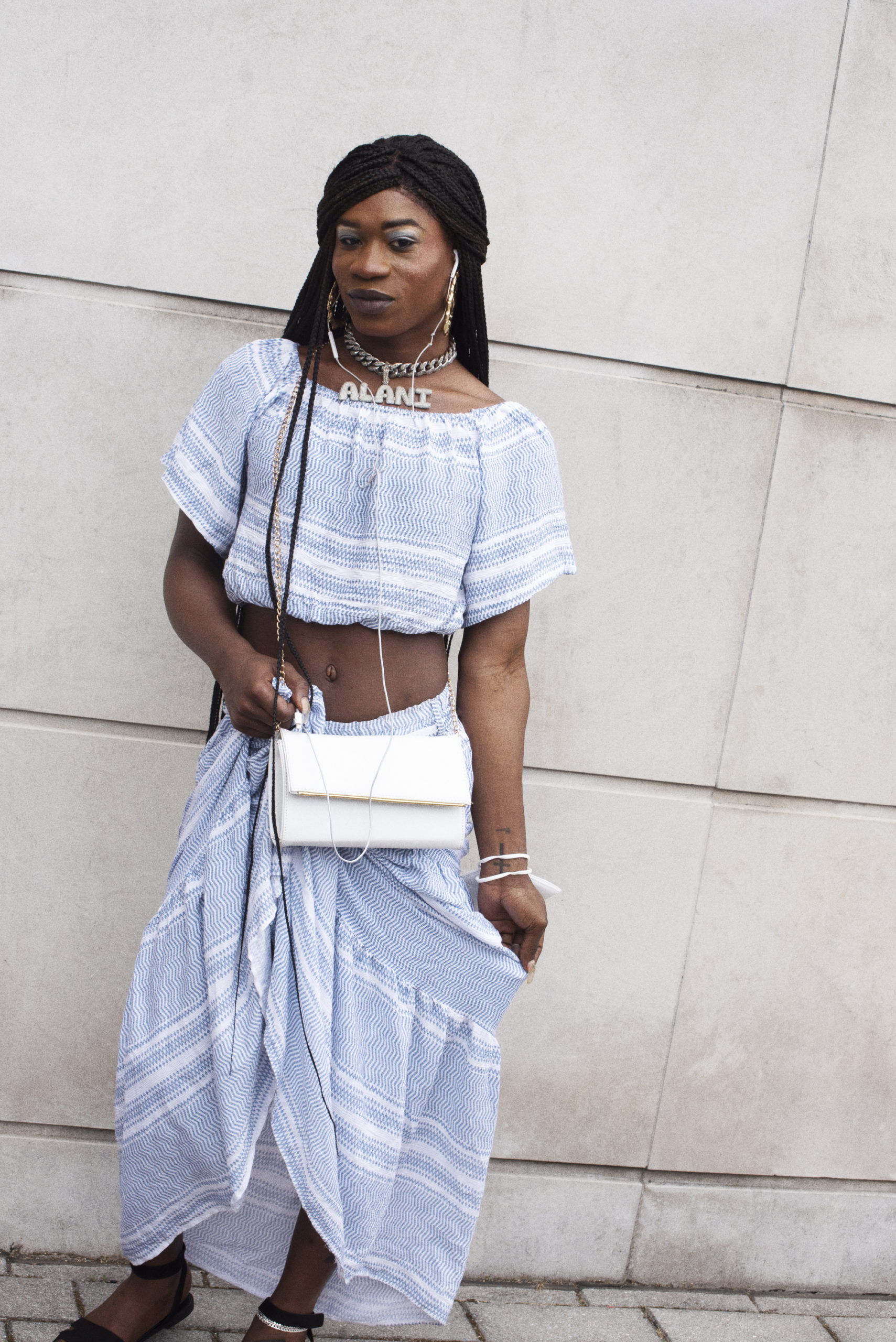
Alani.
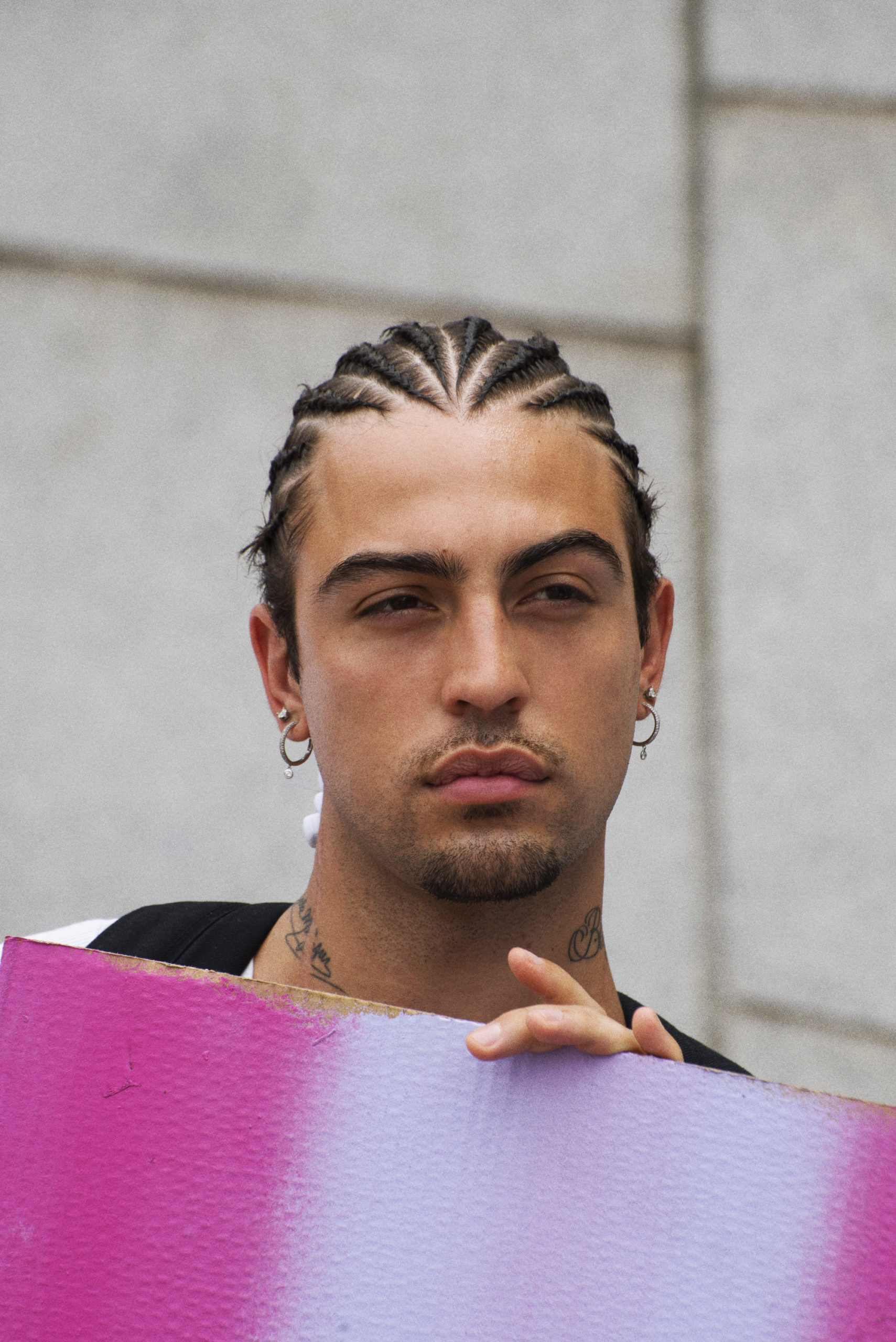
Matthew Mazur.
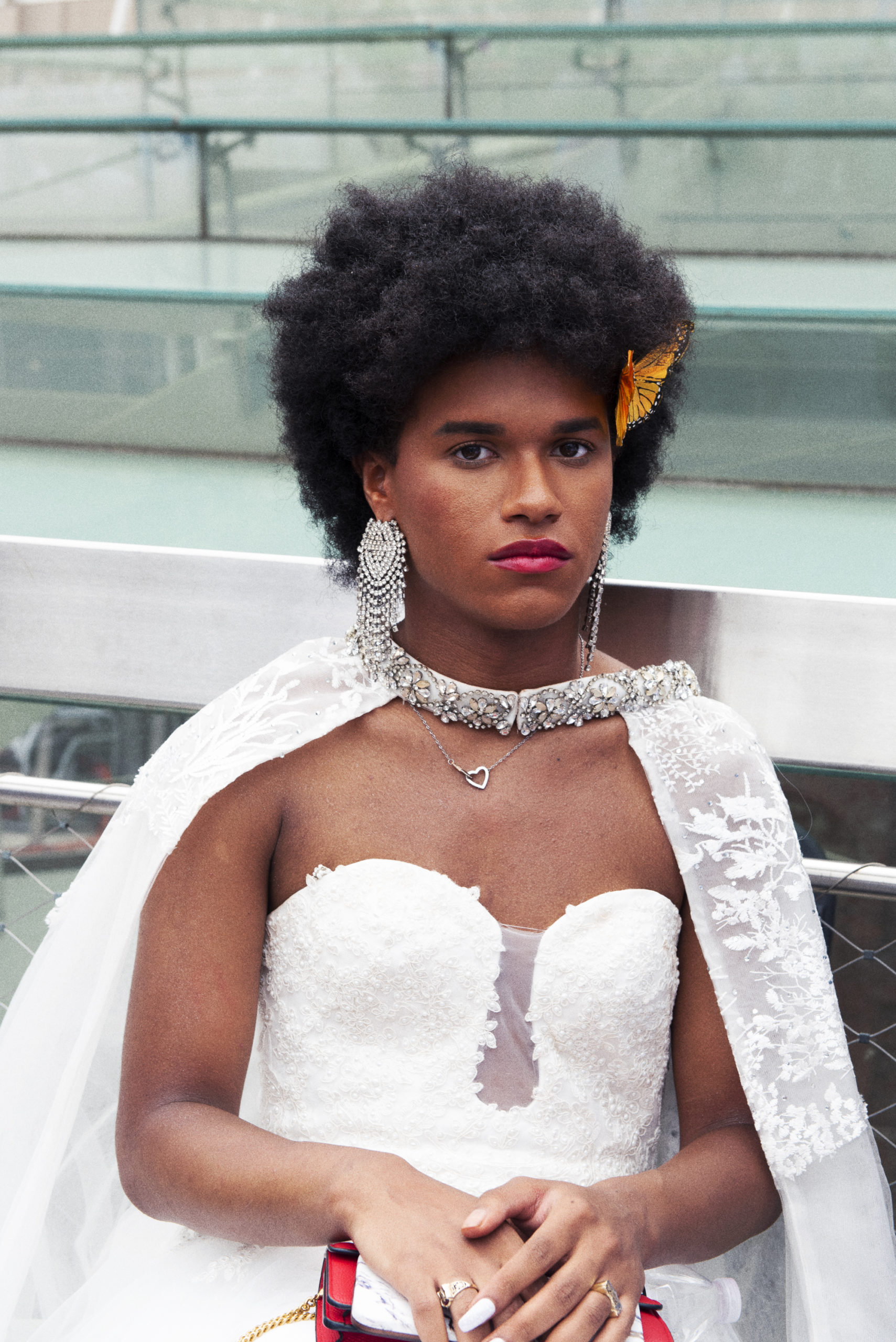
Joella Rivera.
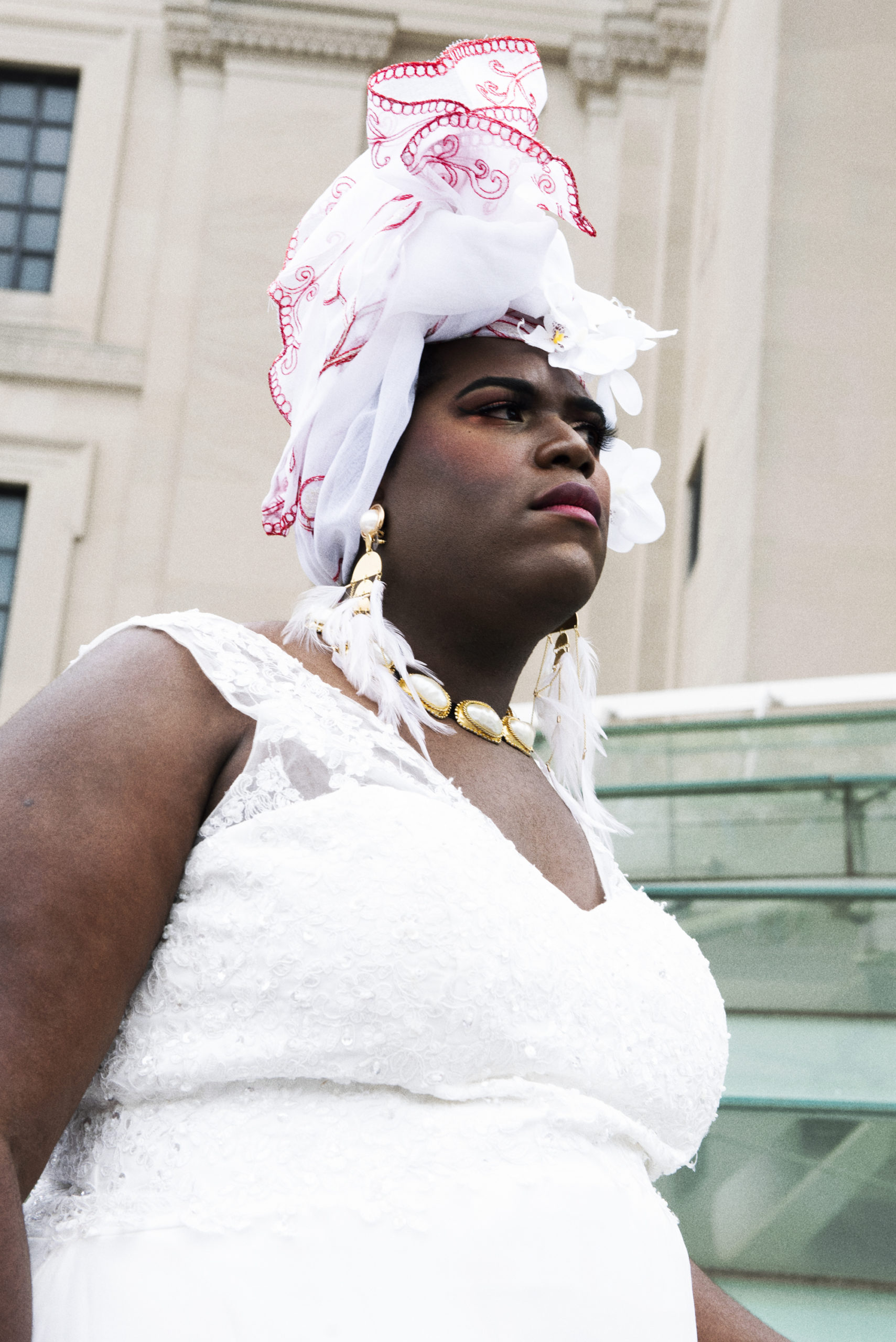
Qween Jean.
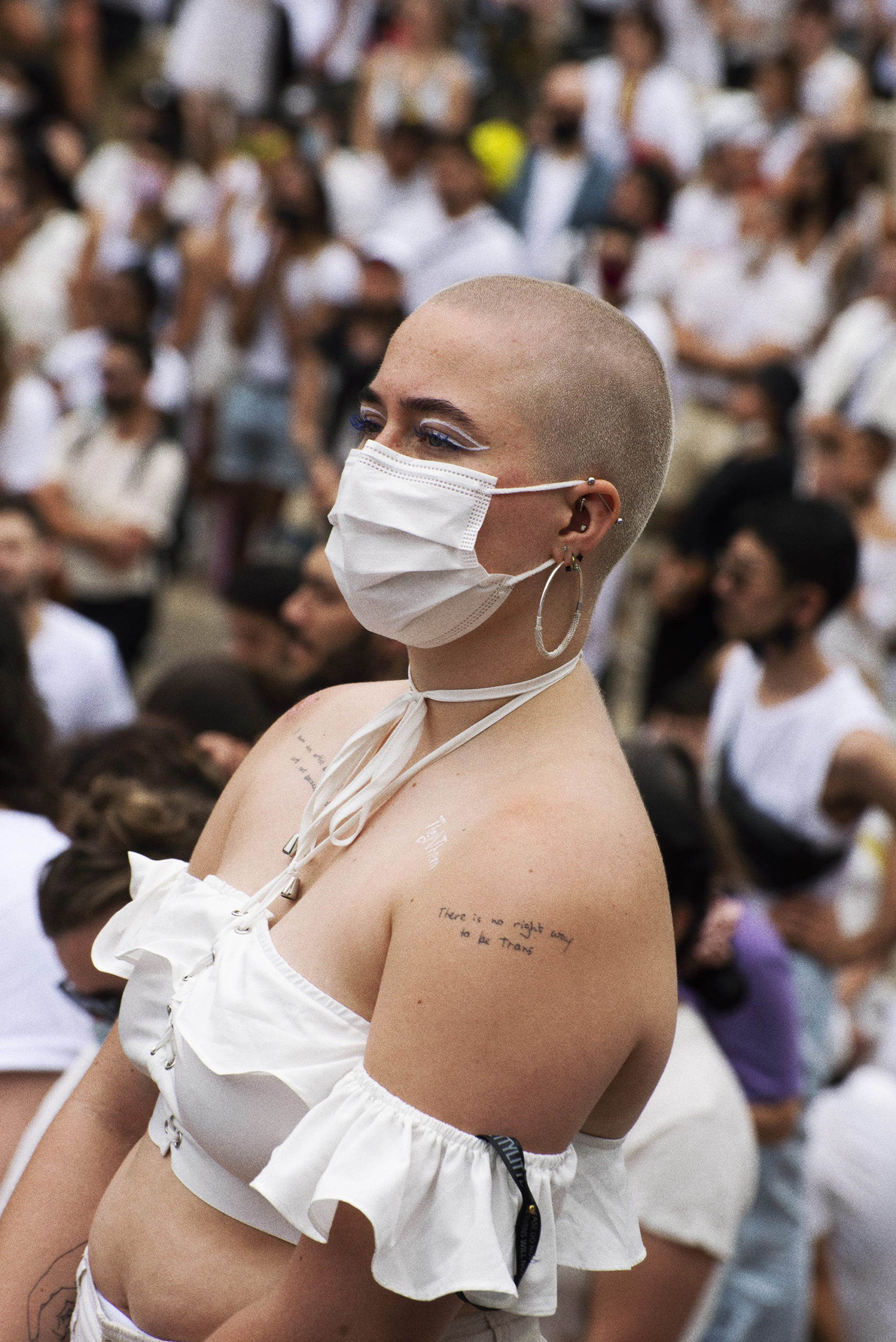
Marieke.
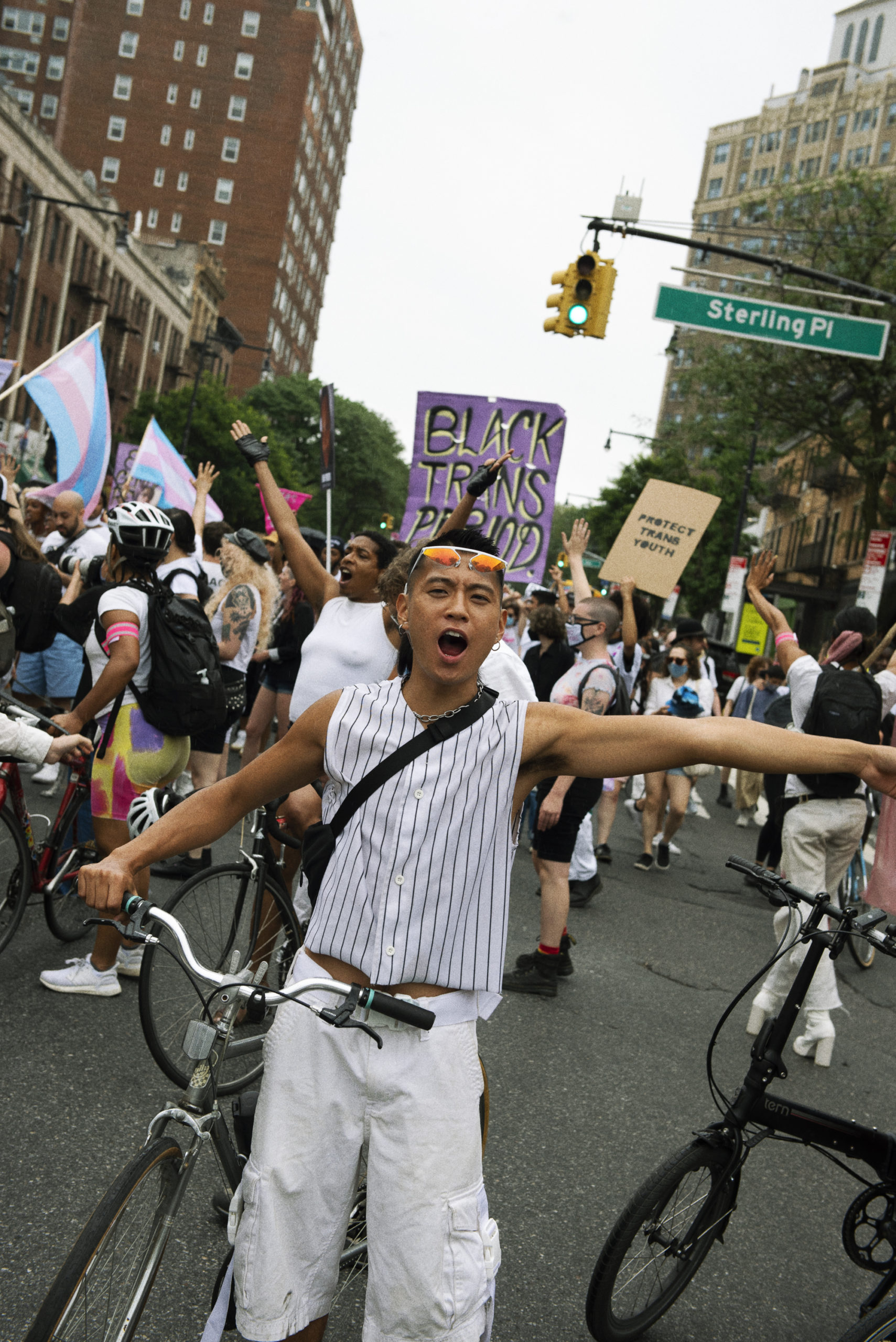
Sammy Kims.
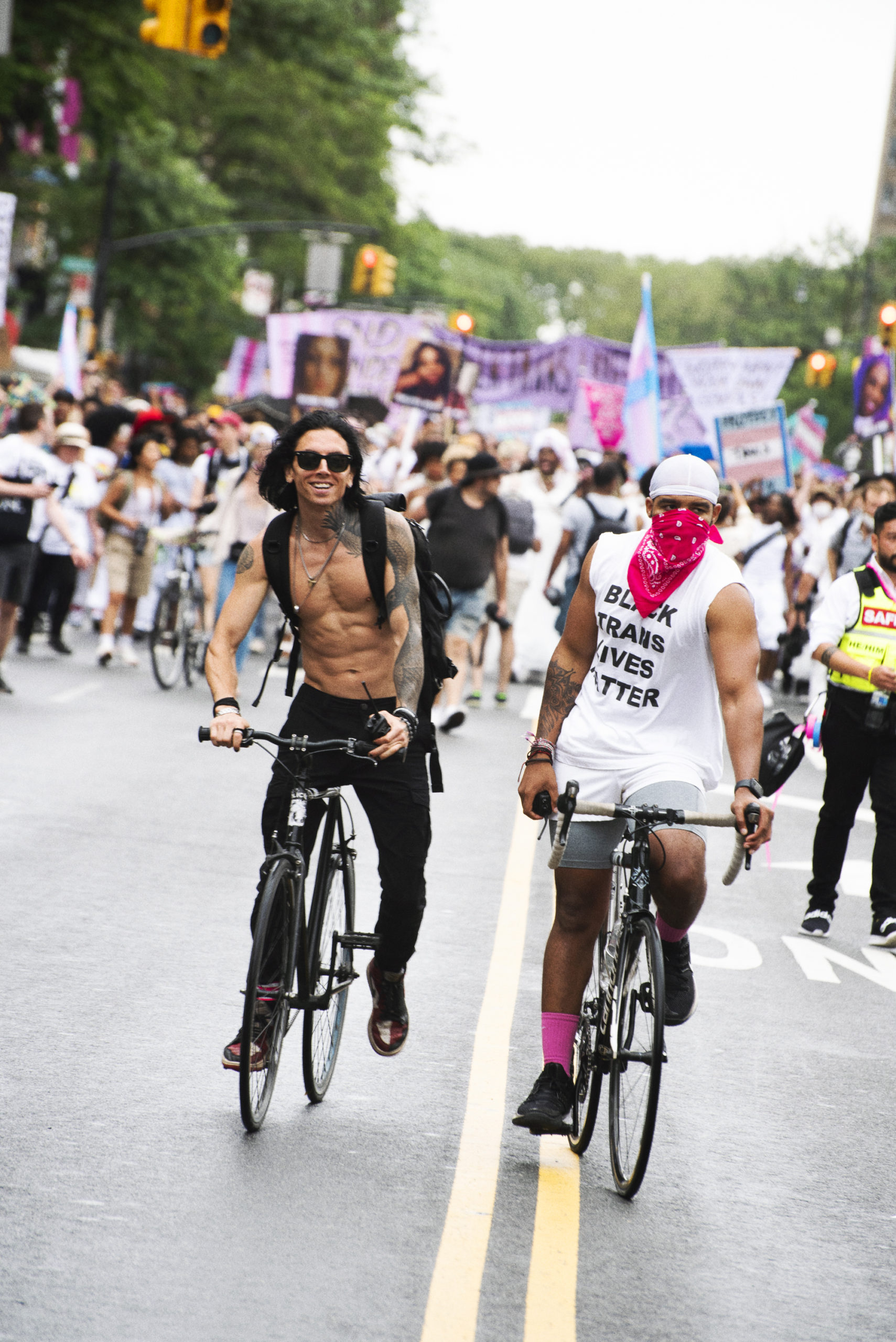
Blaze and Luis.
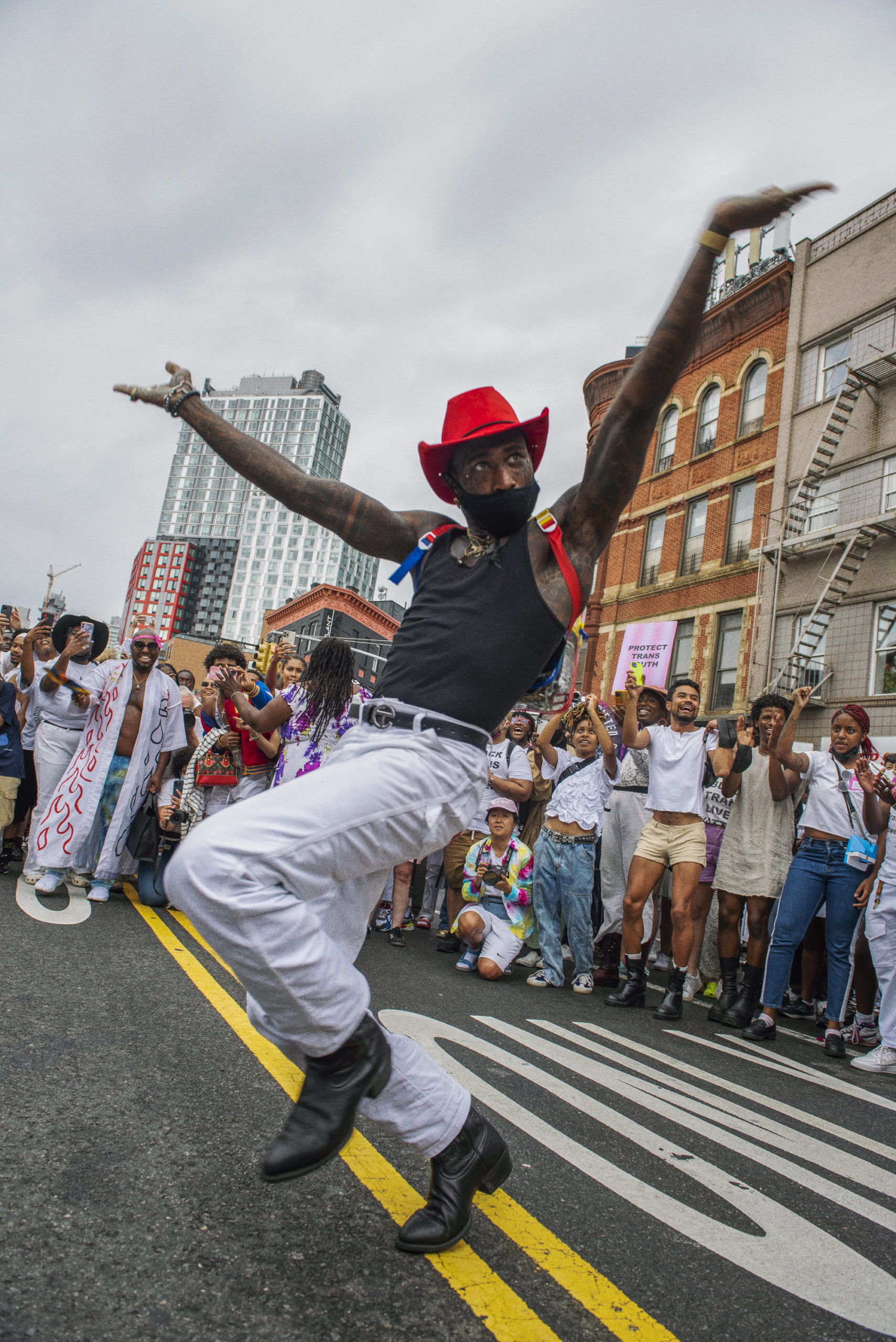
Yves.
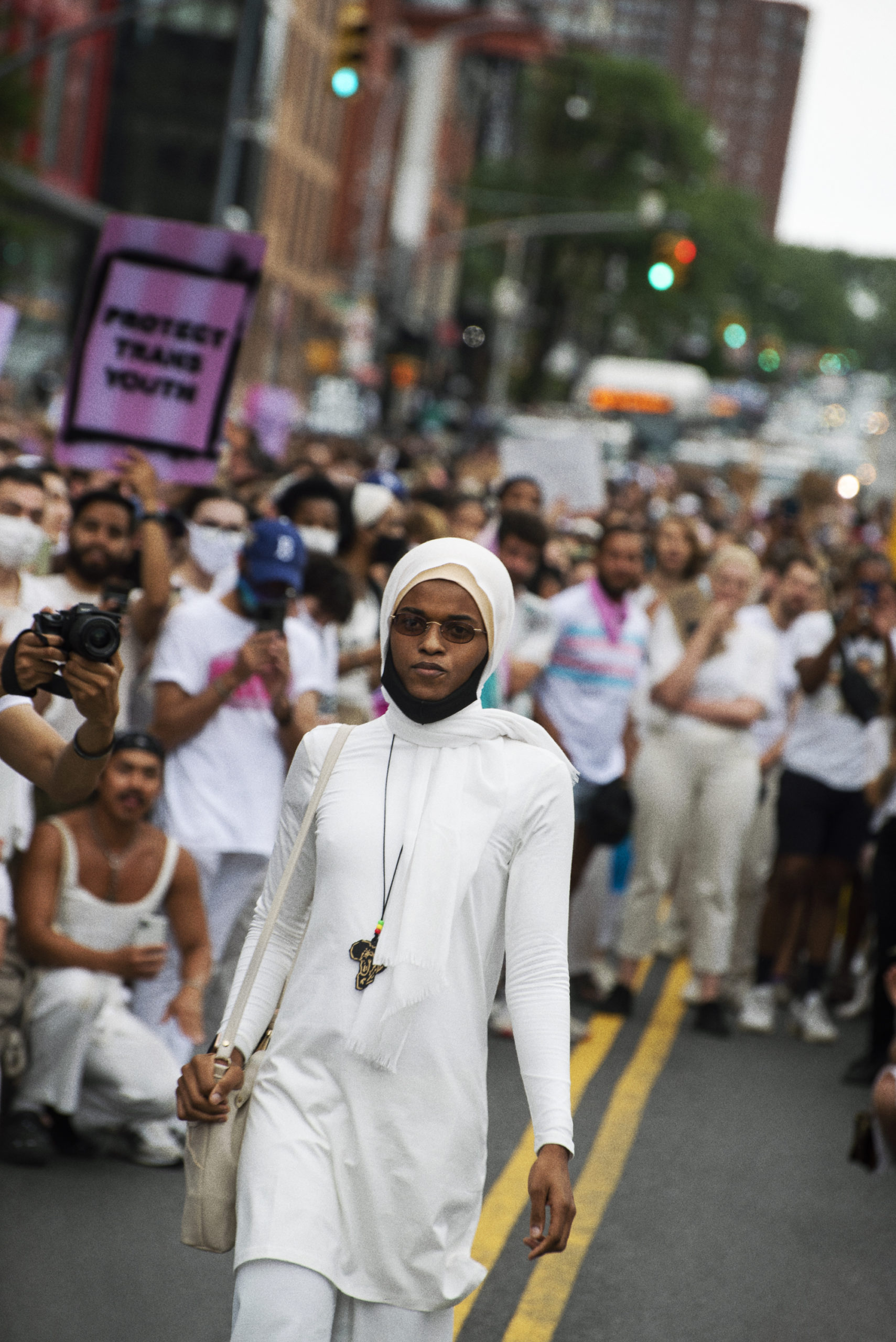
Laboujienata.
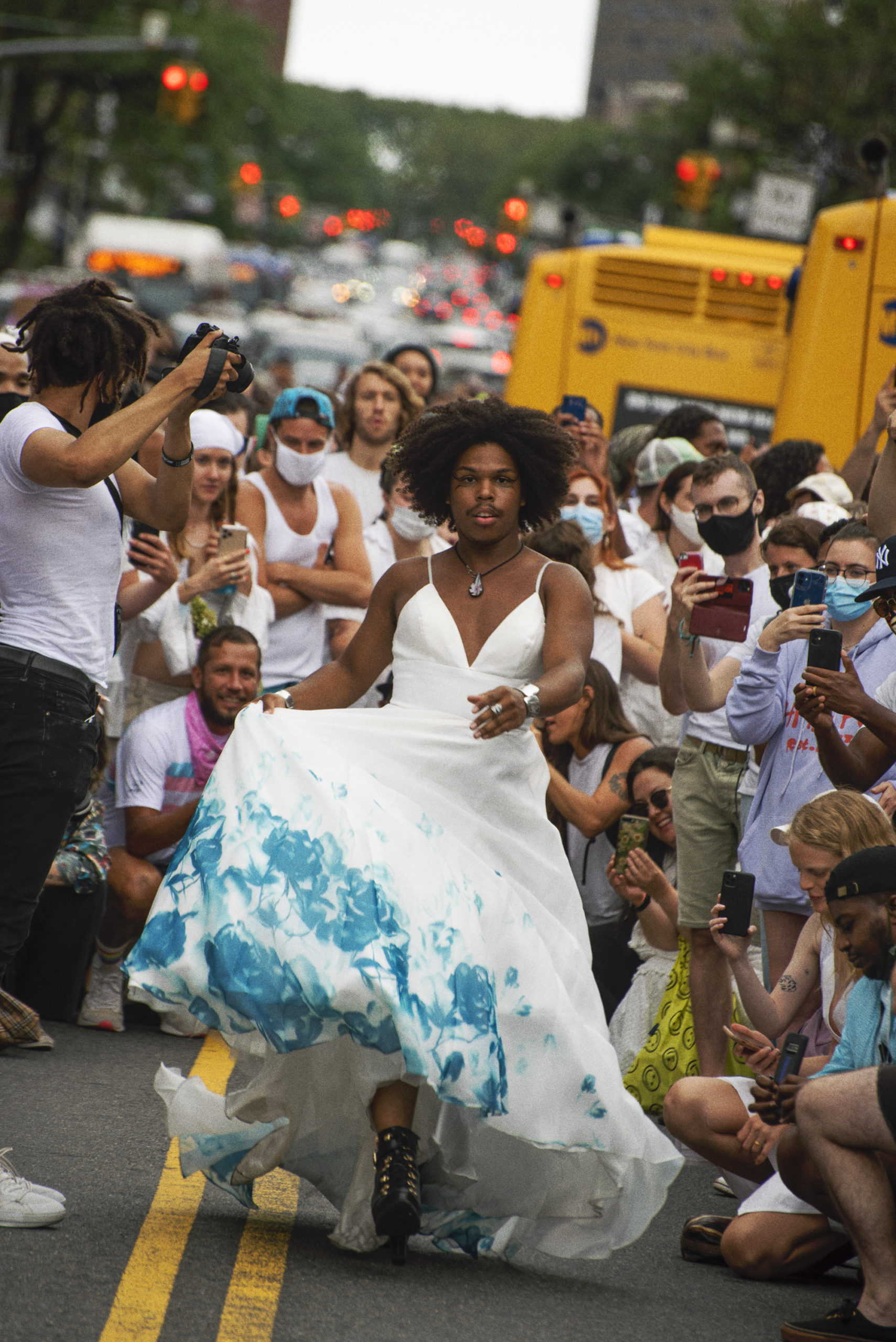
Neptune.
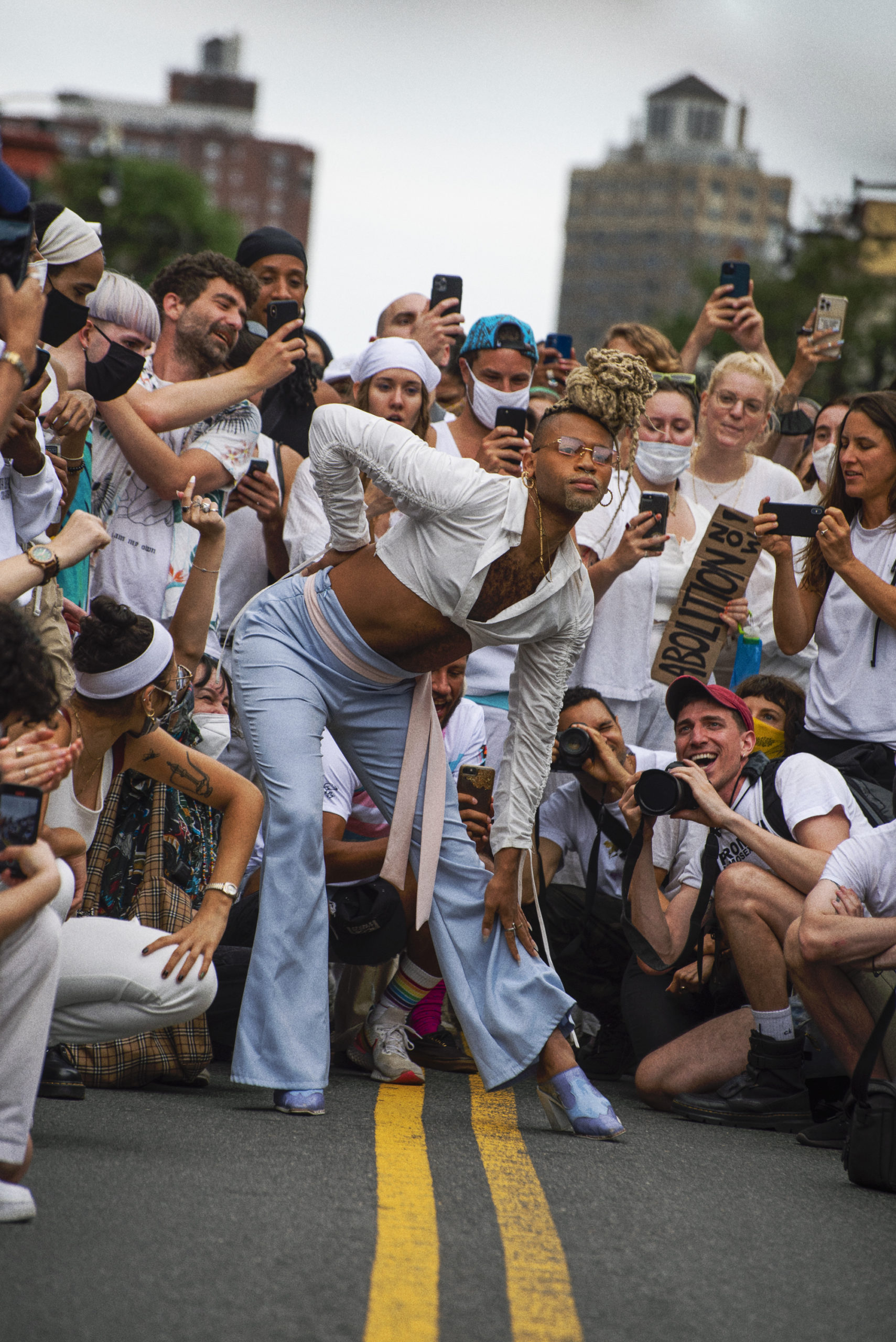
Isaiah Alan.
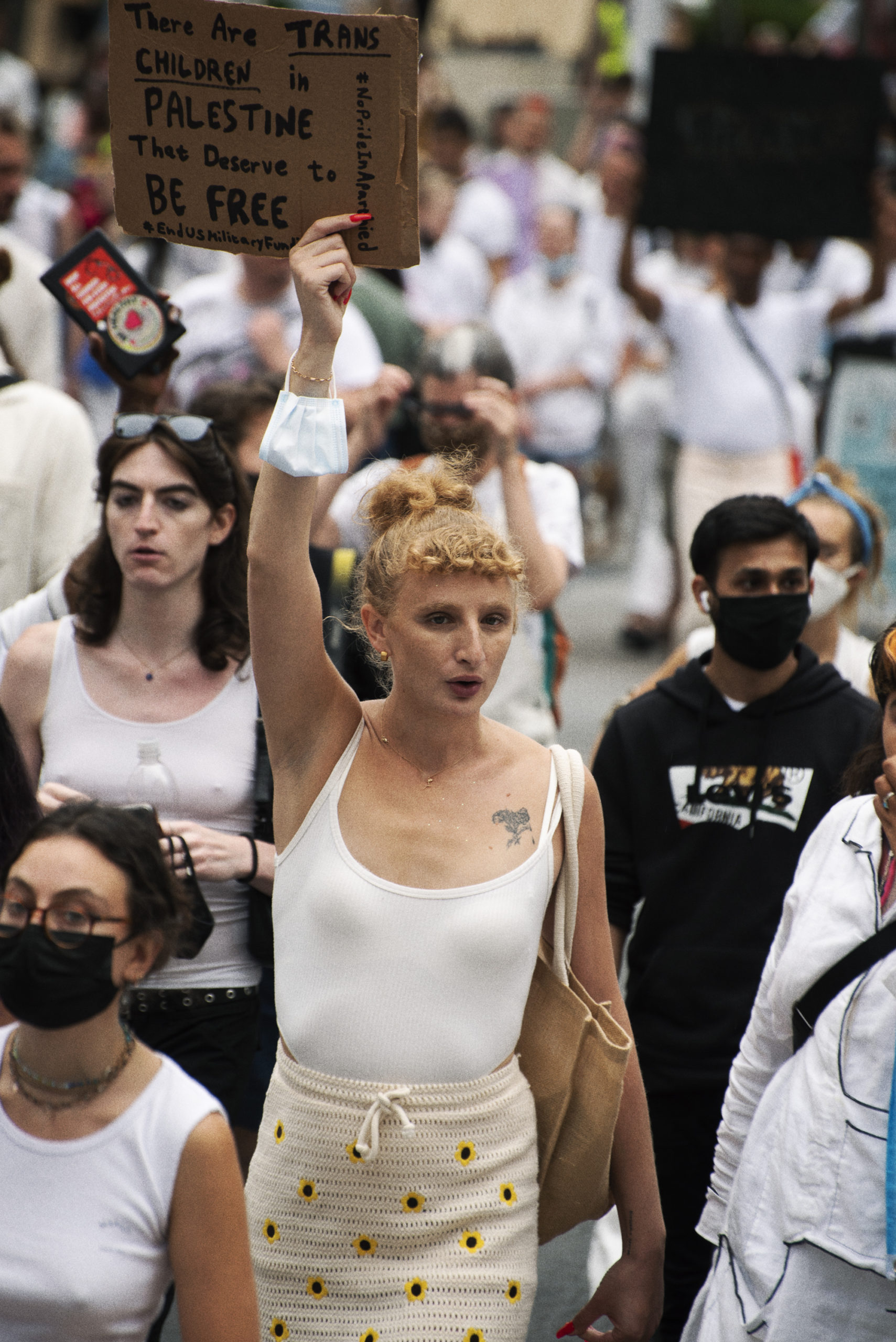
Ita Segev.
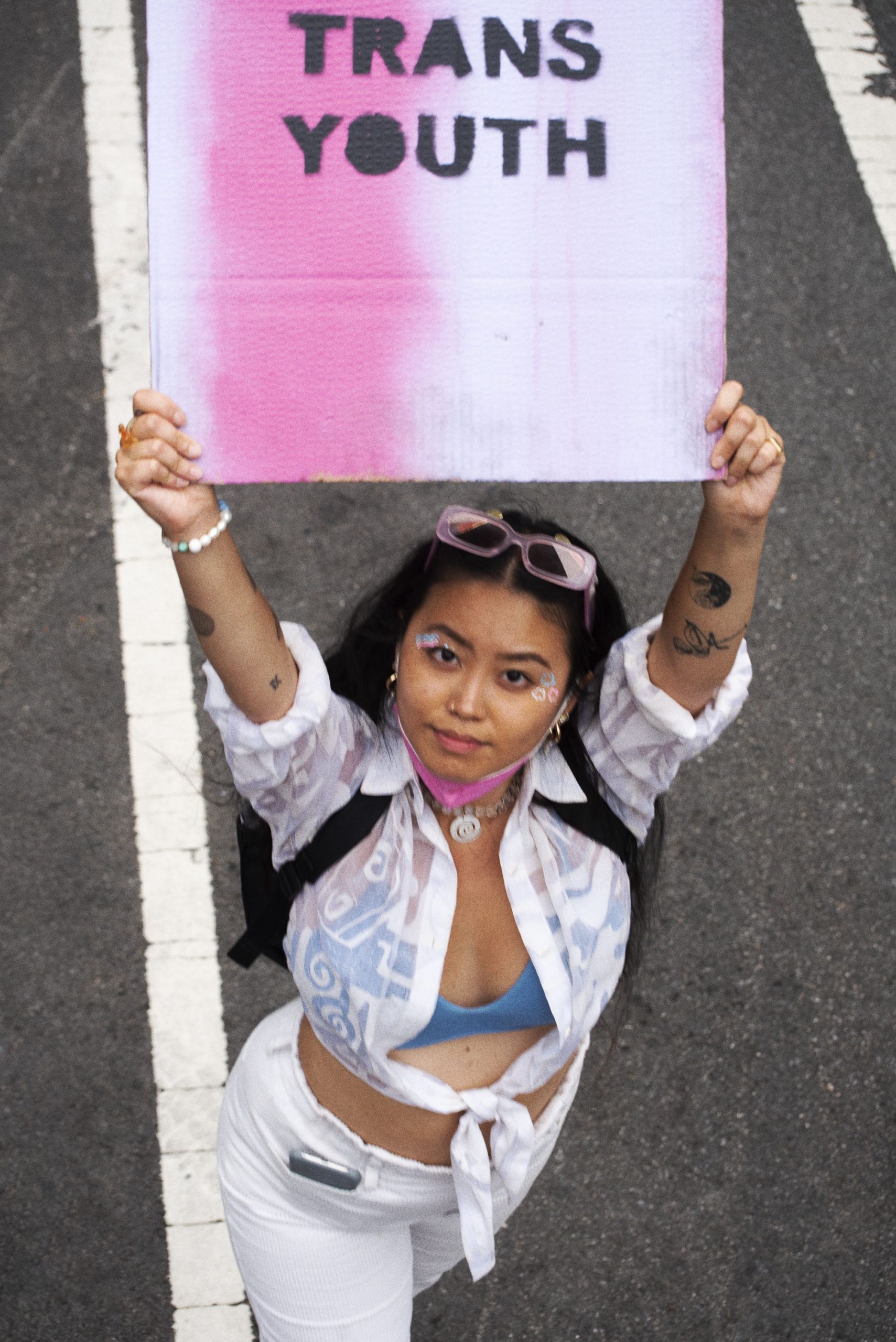
Jezz Chung.
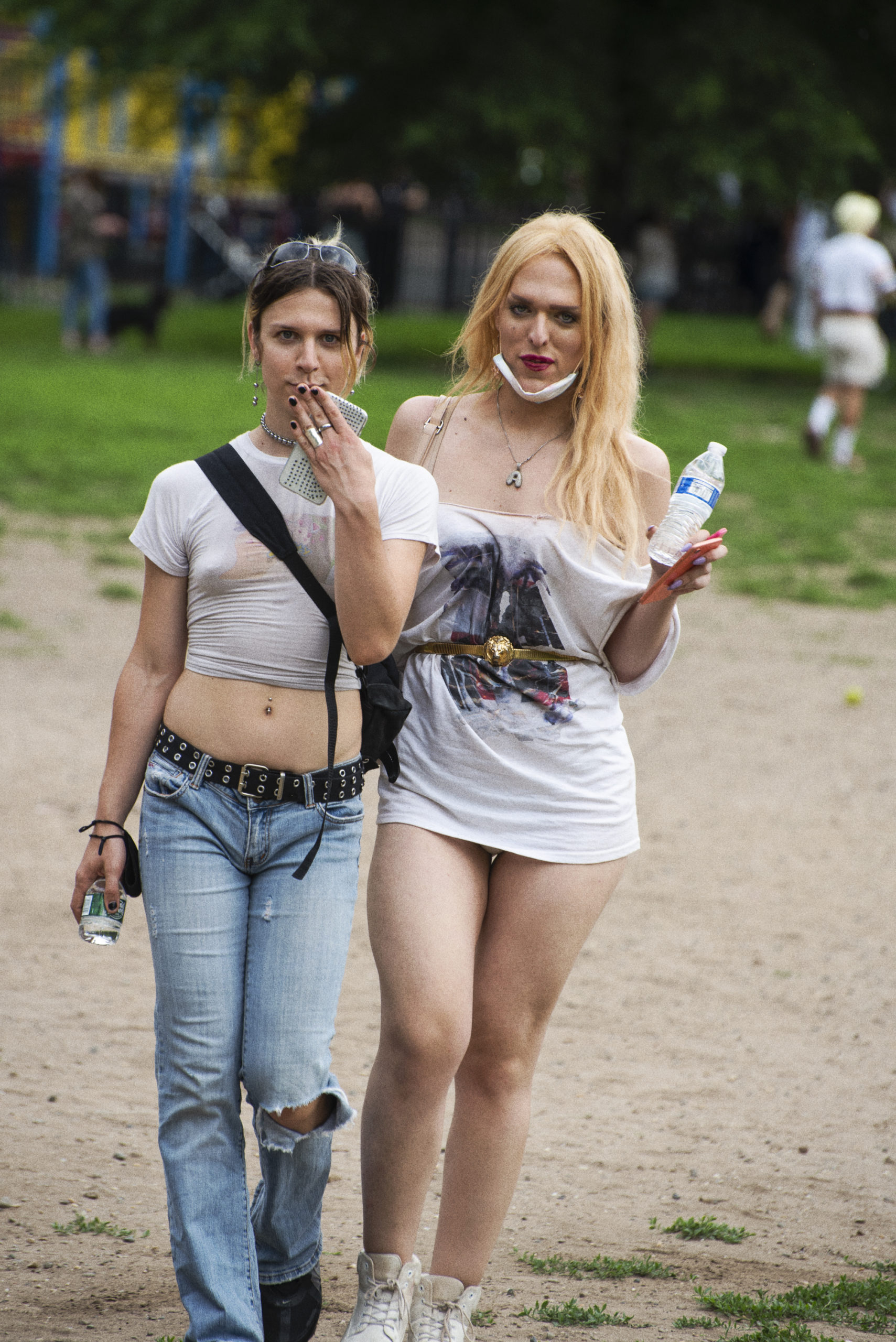
Alana Jessica and friend.
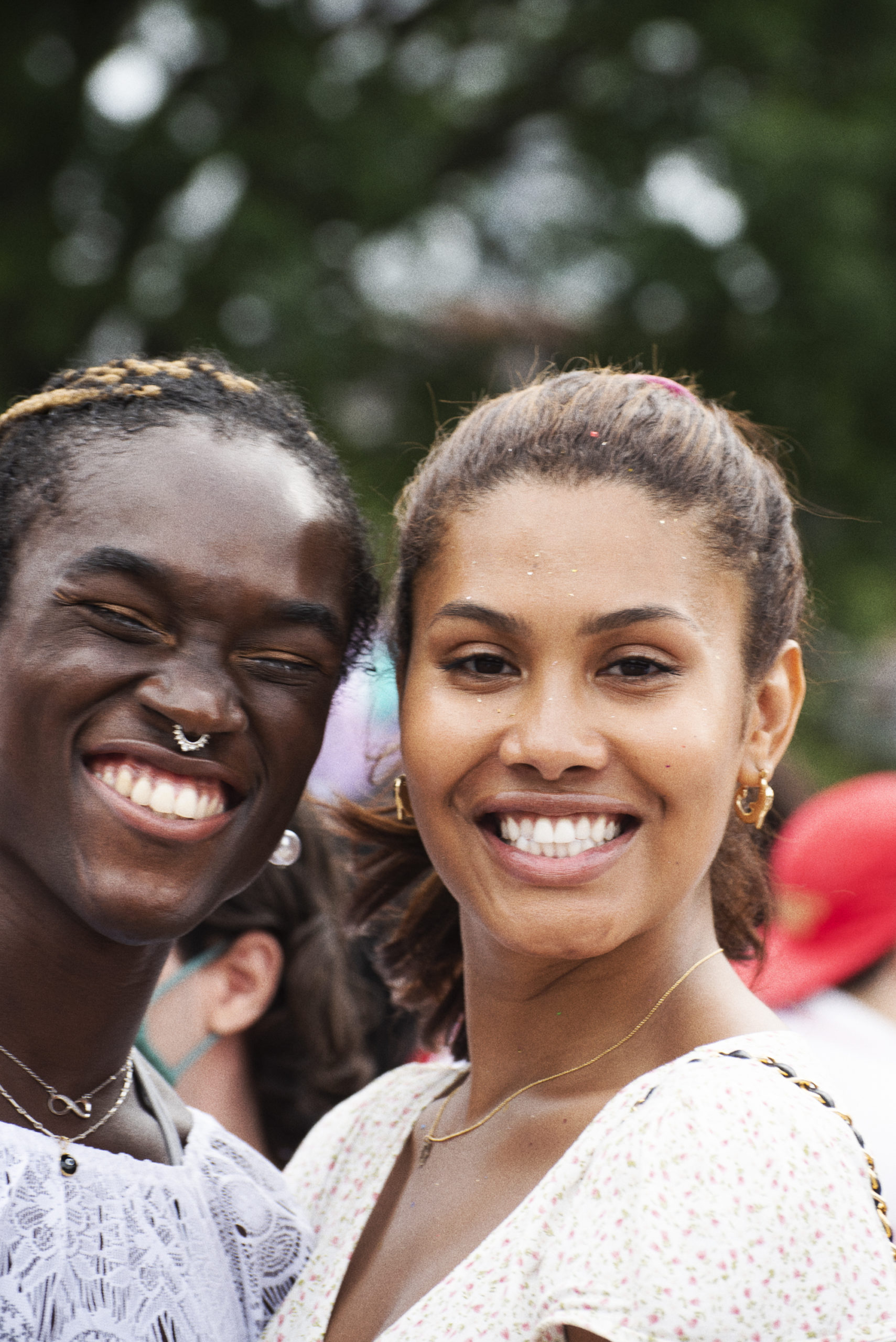
Alex and Leyna Bloom.
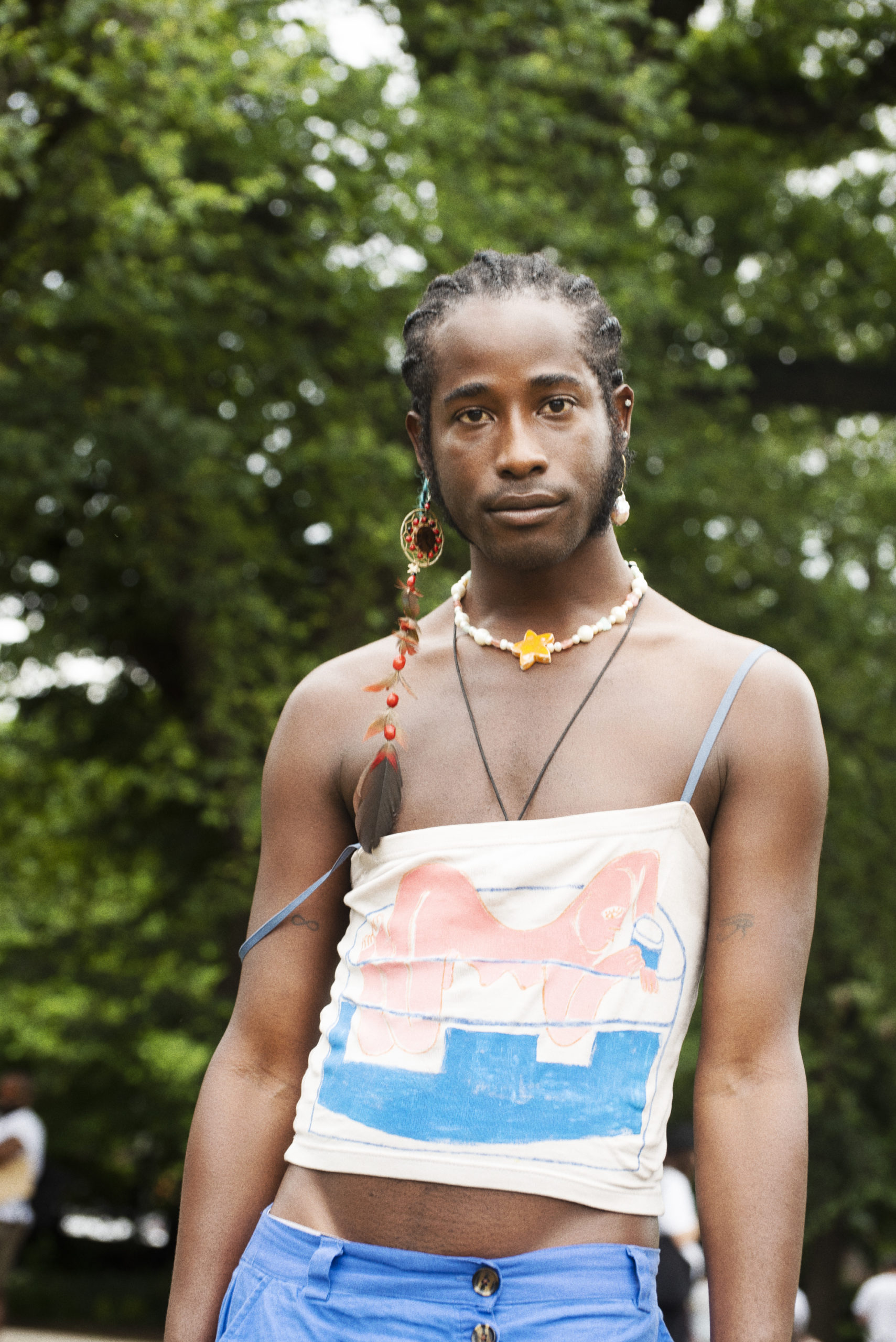
Cory Walker.
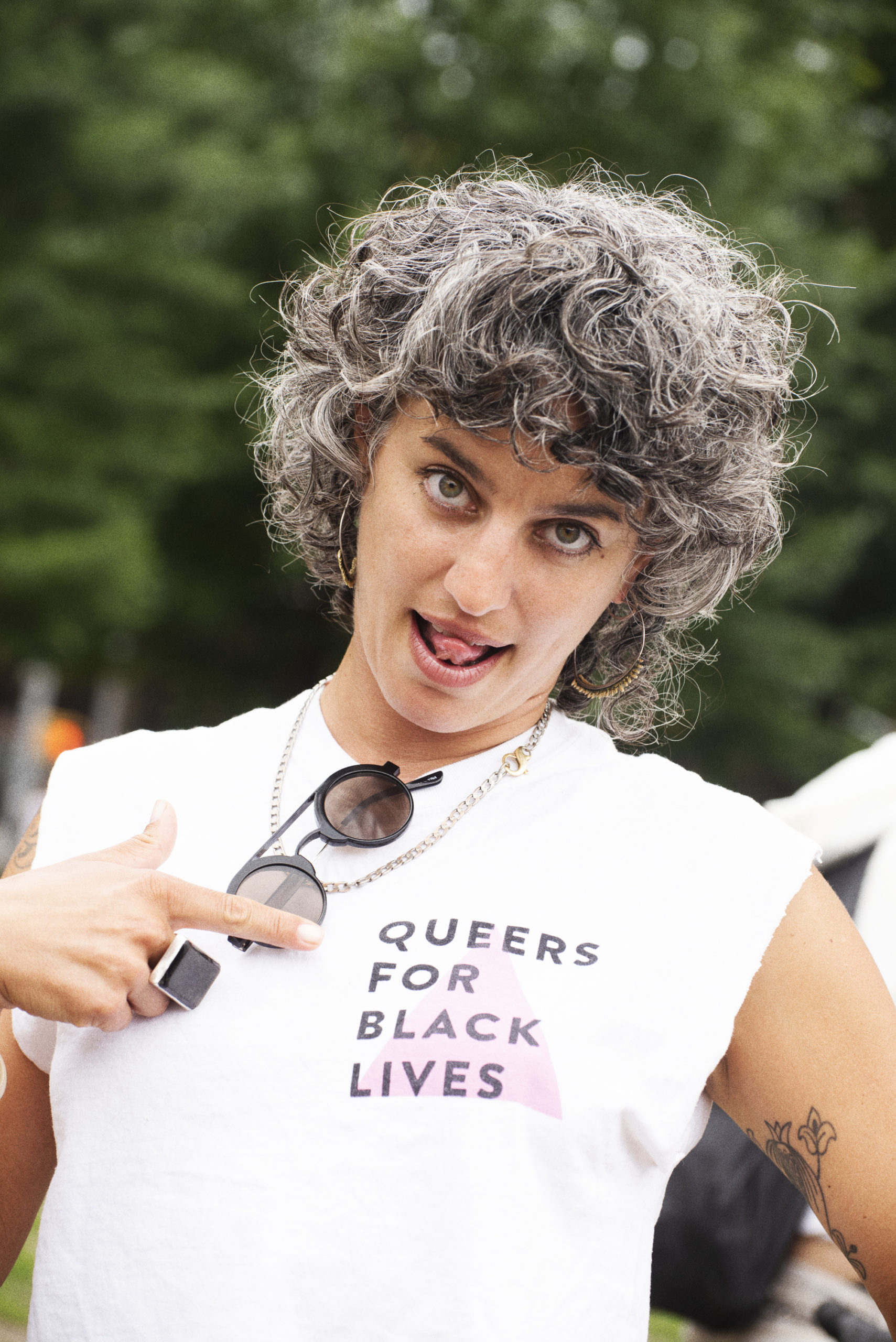
Ora Wise.
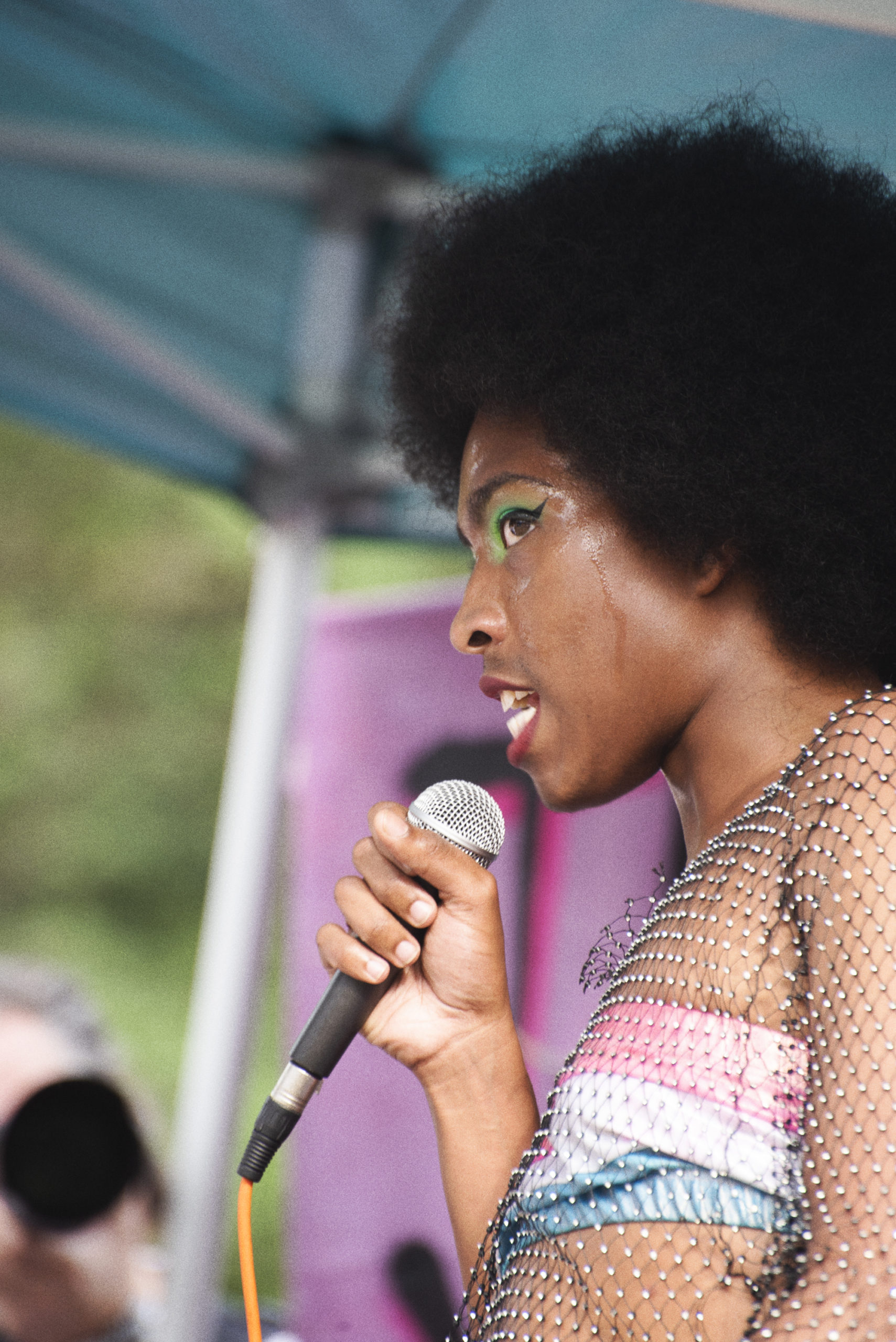
Junior Mintt.
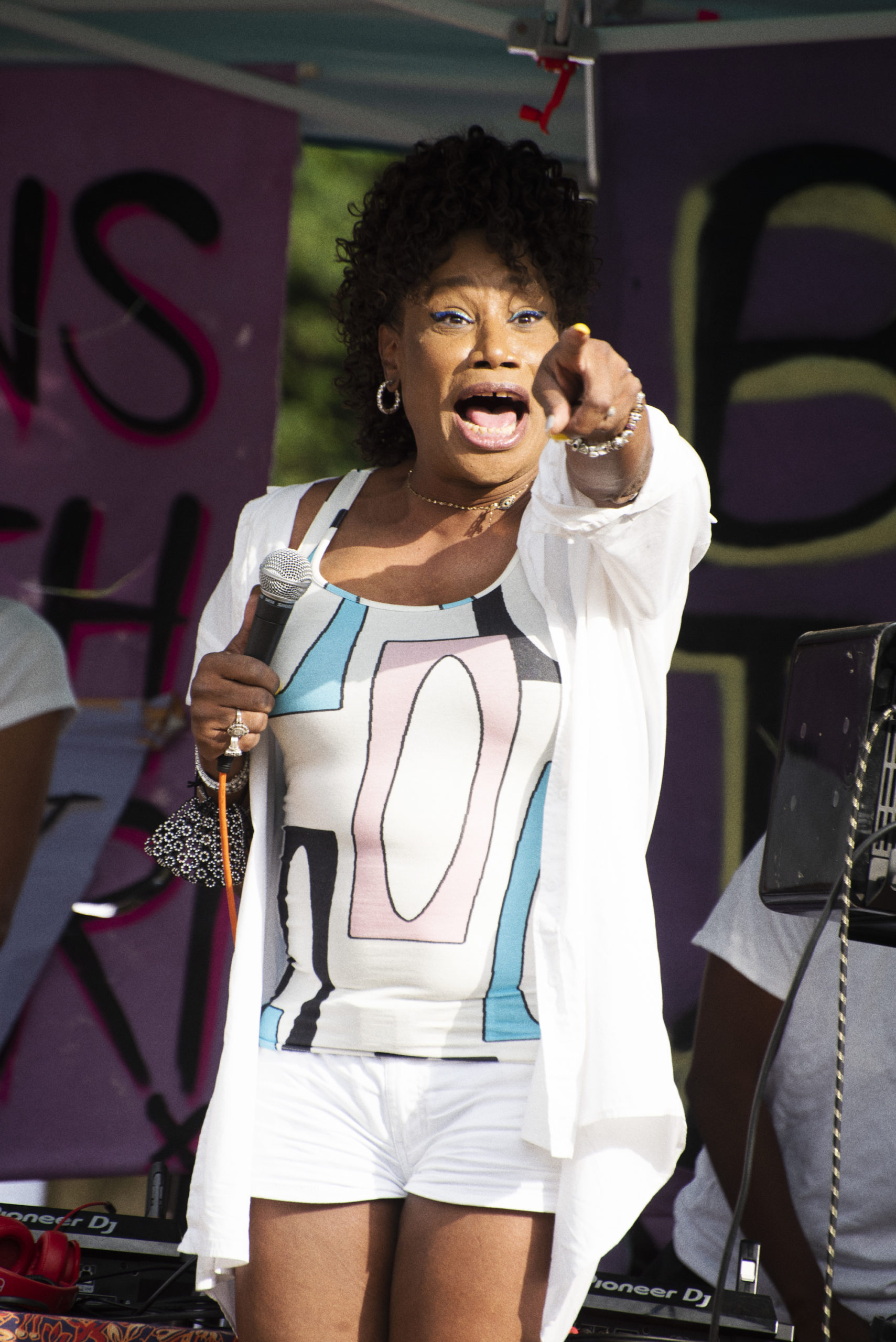
Ceyenne Doroshow.
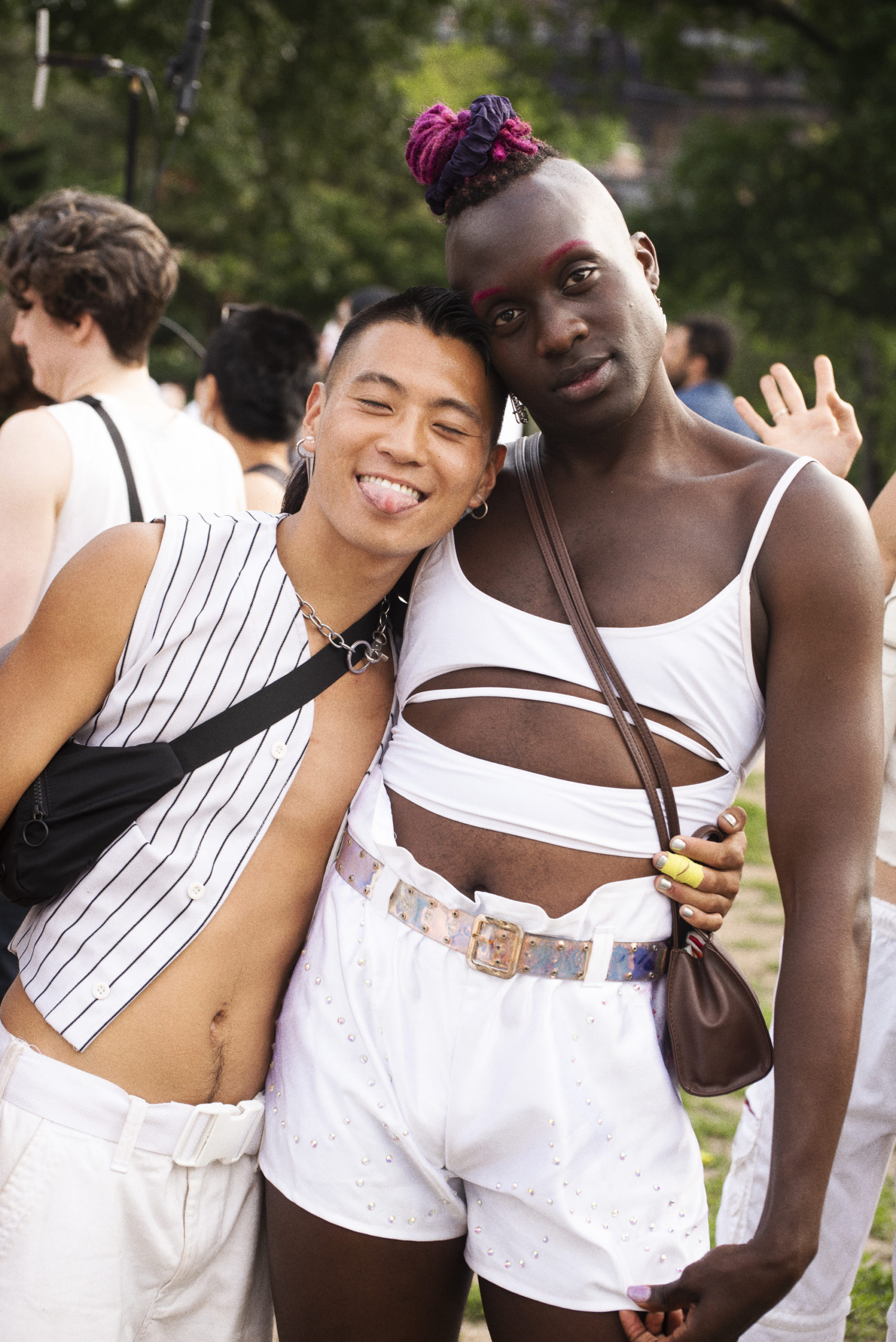
Sammy and Basit.
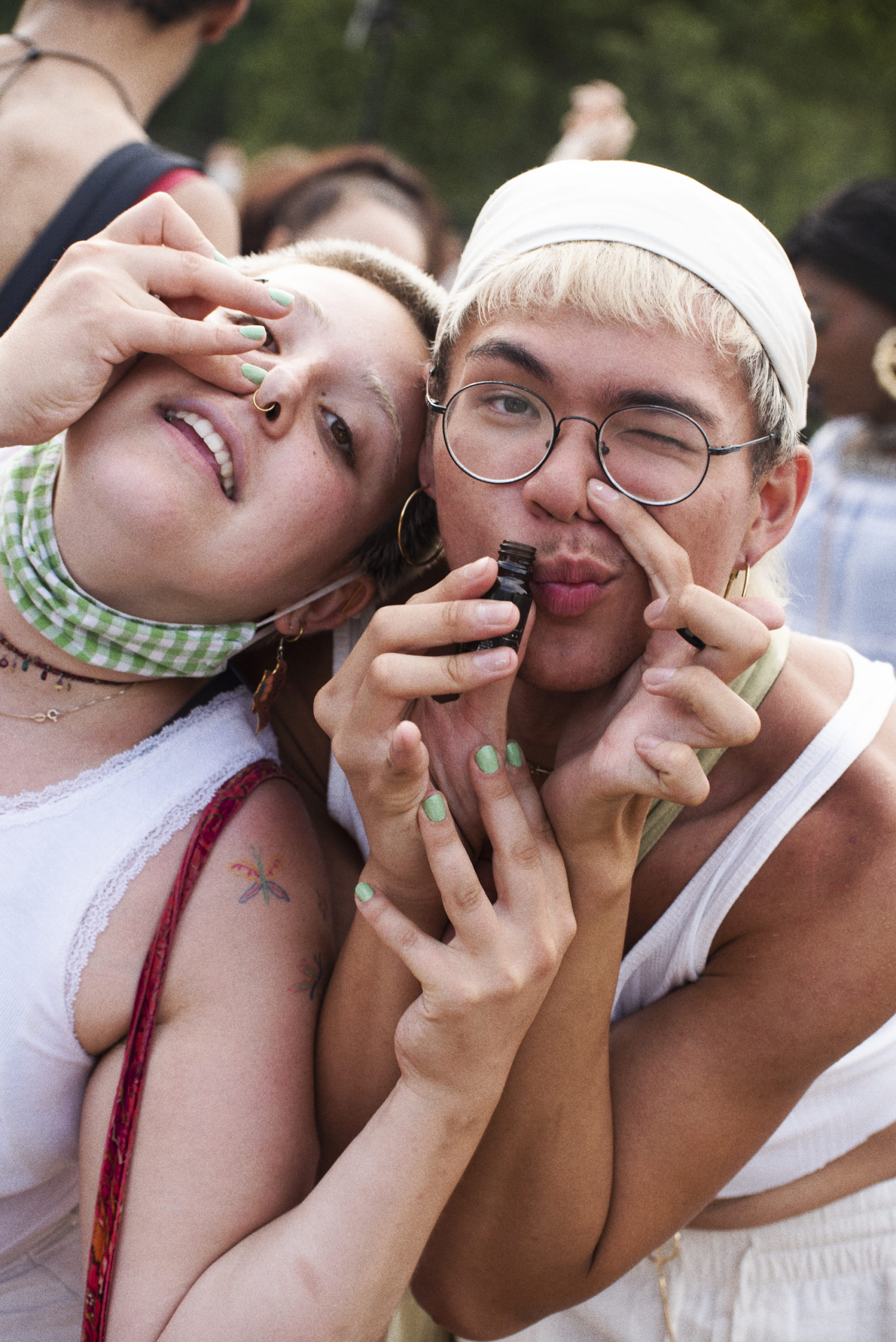
Jeerond and friend.
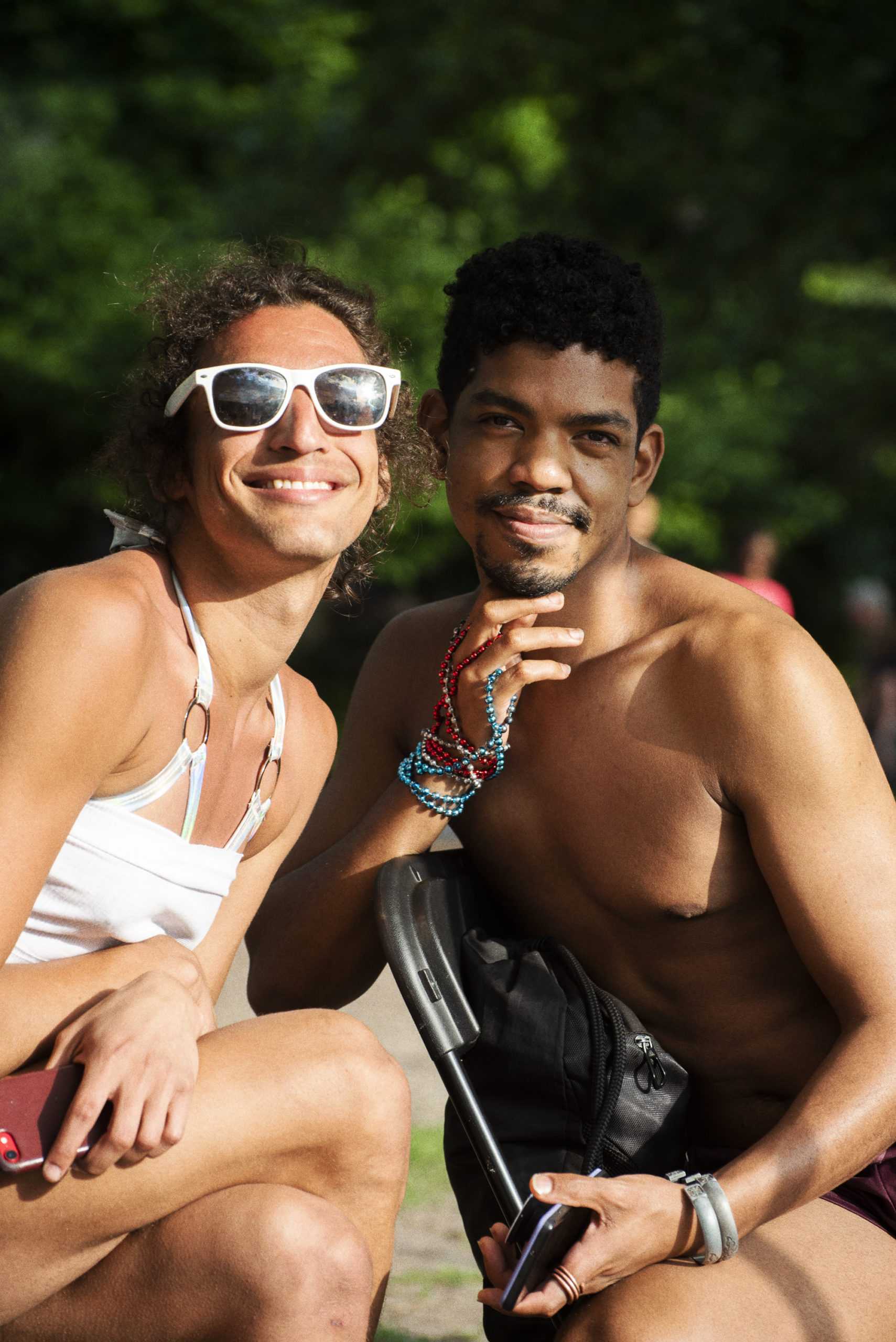
Kween Amor and Rohan.
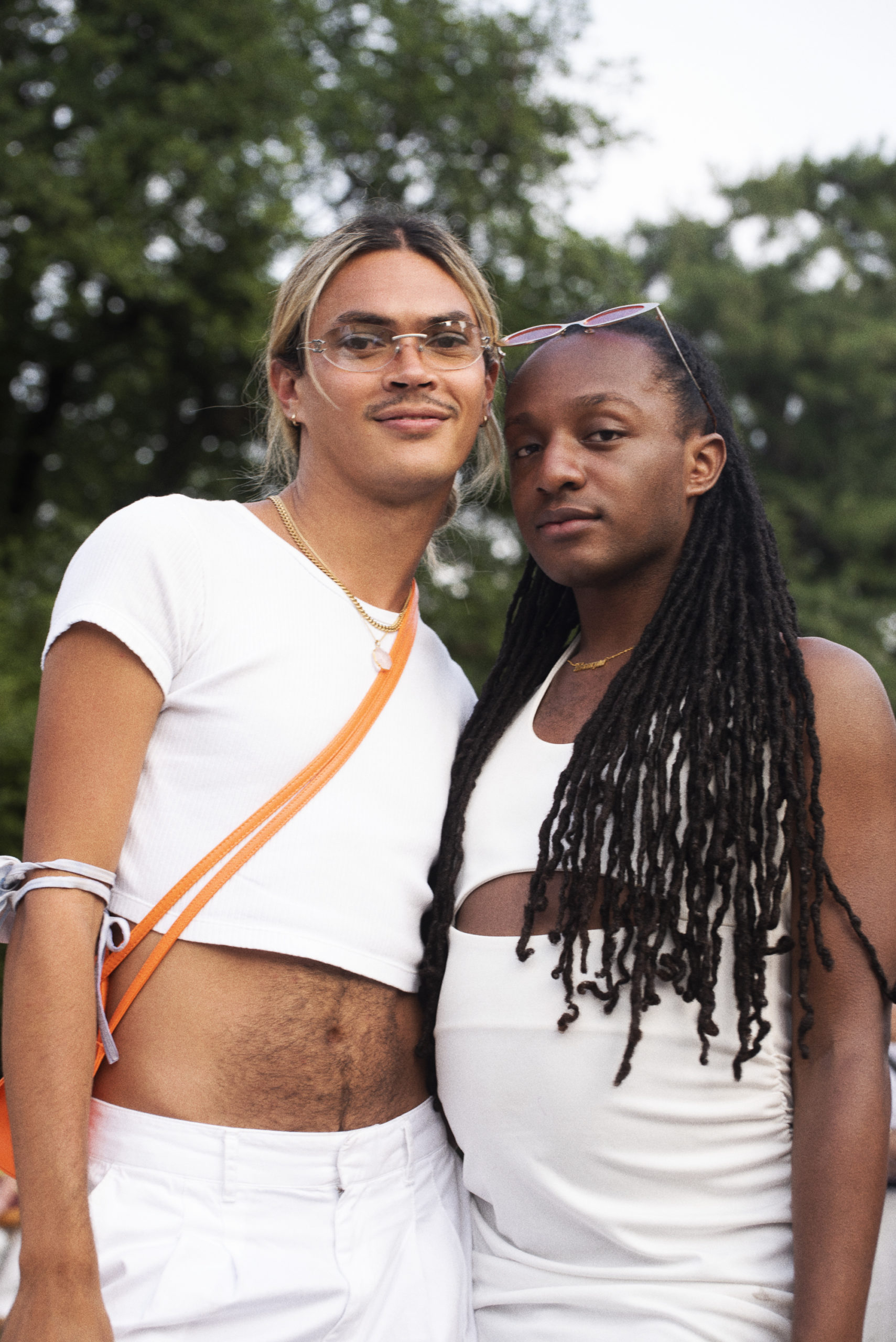
West Dakota and Joshua.
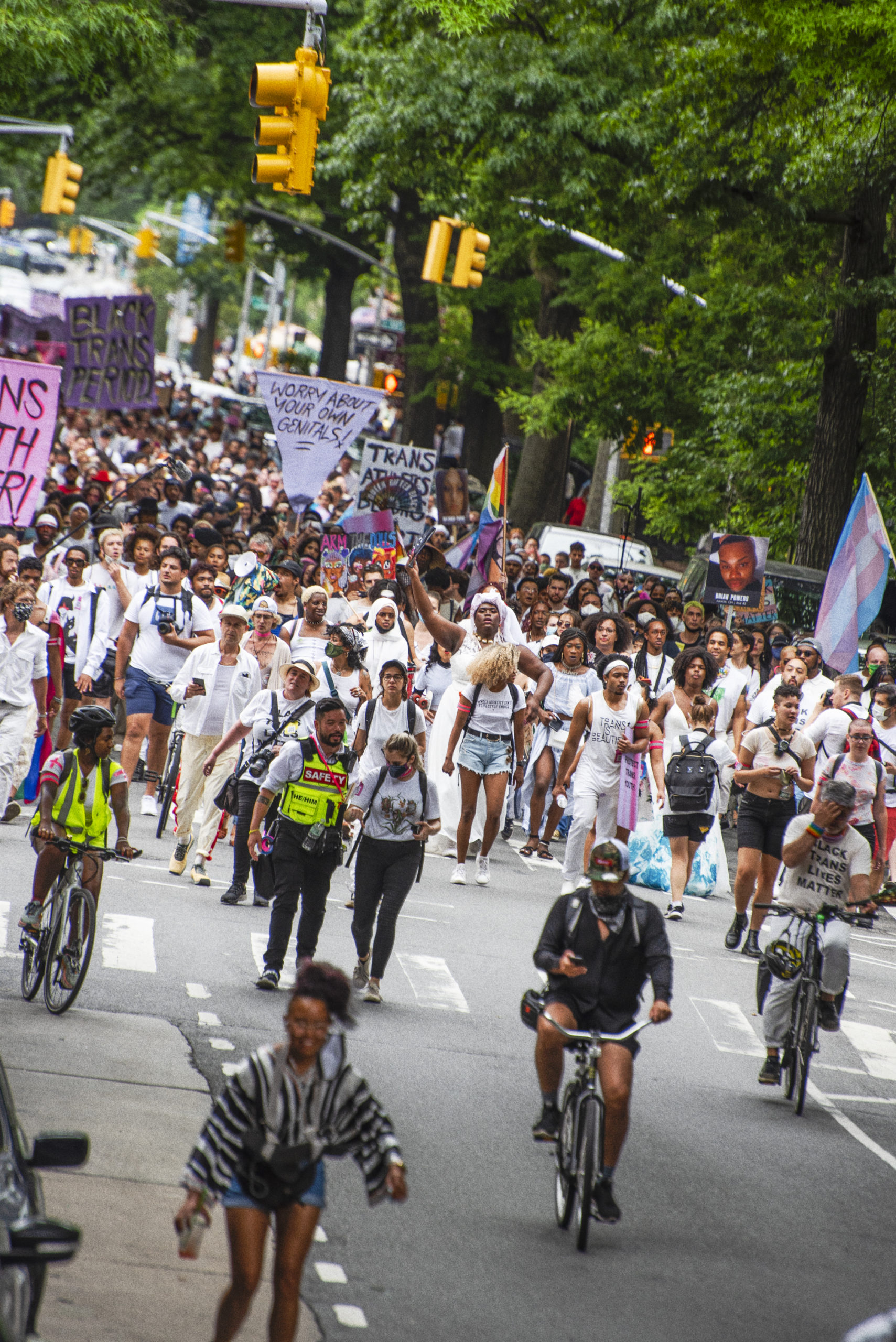
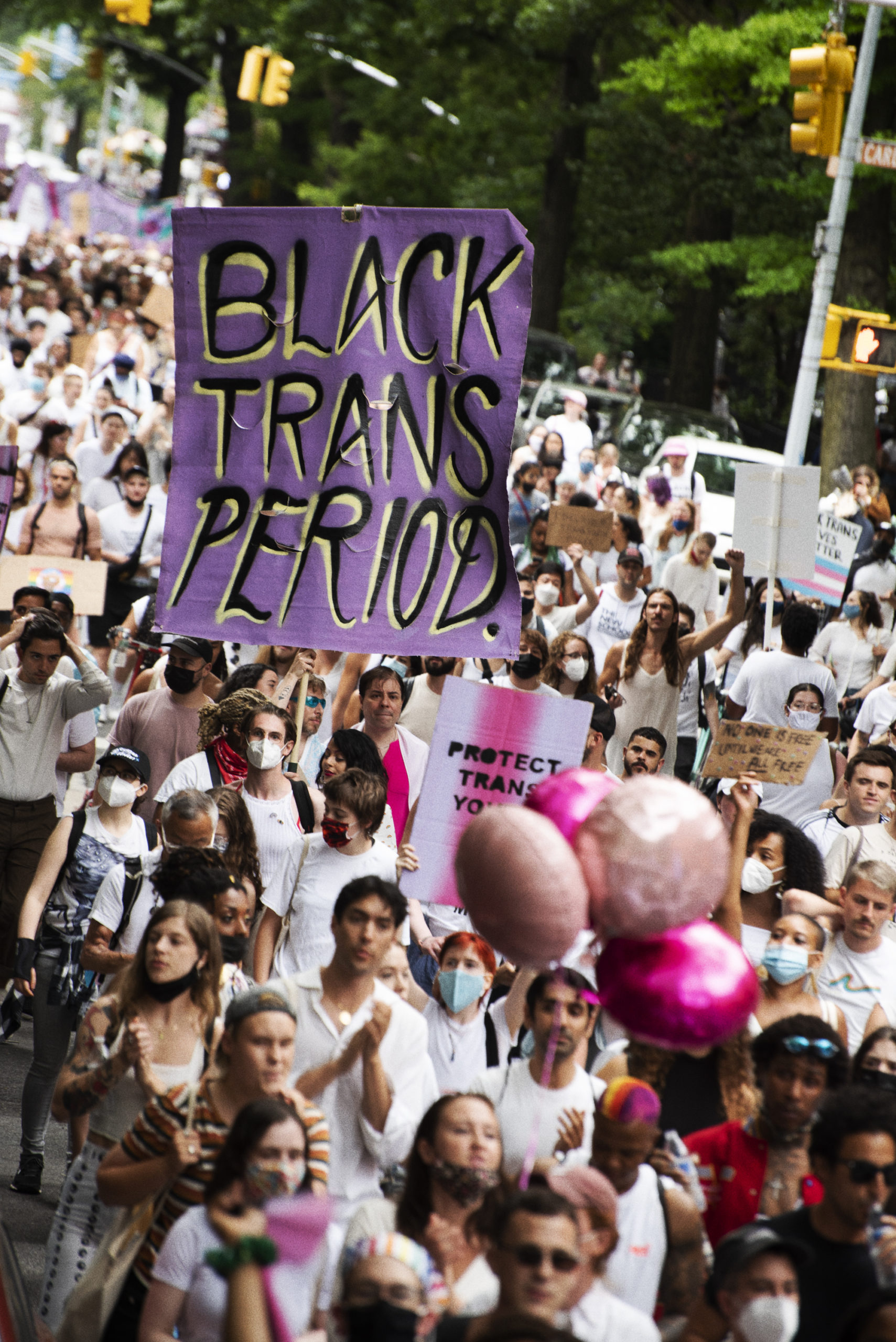
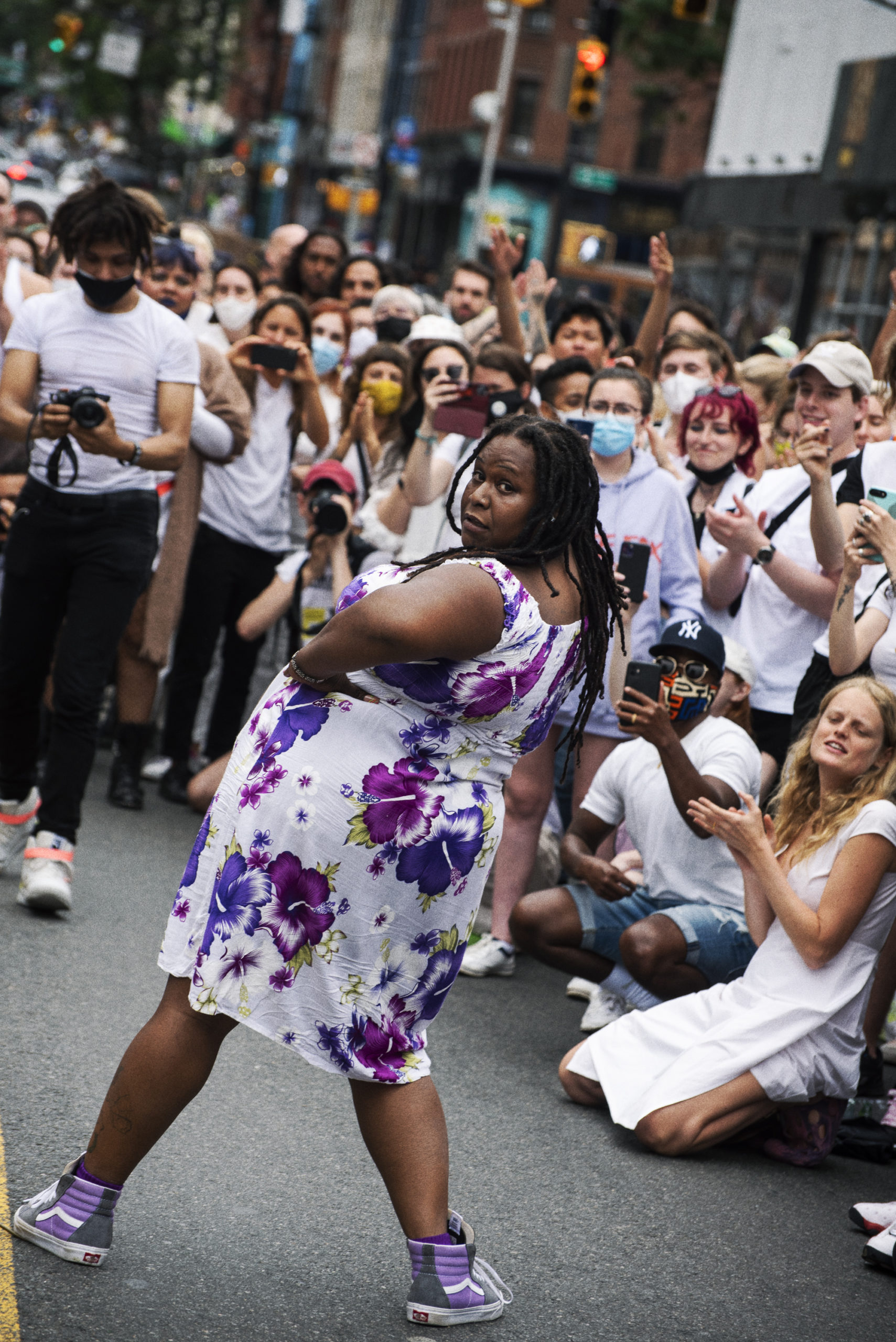
Tahtianna Infinity.
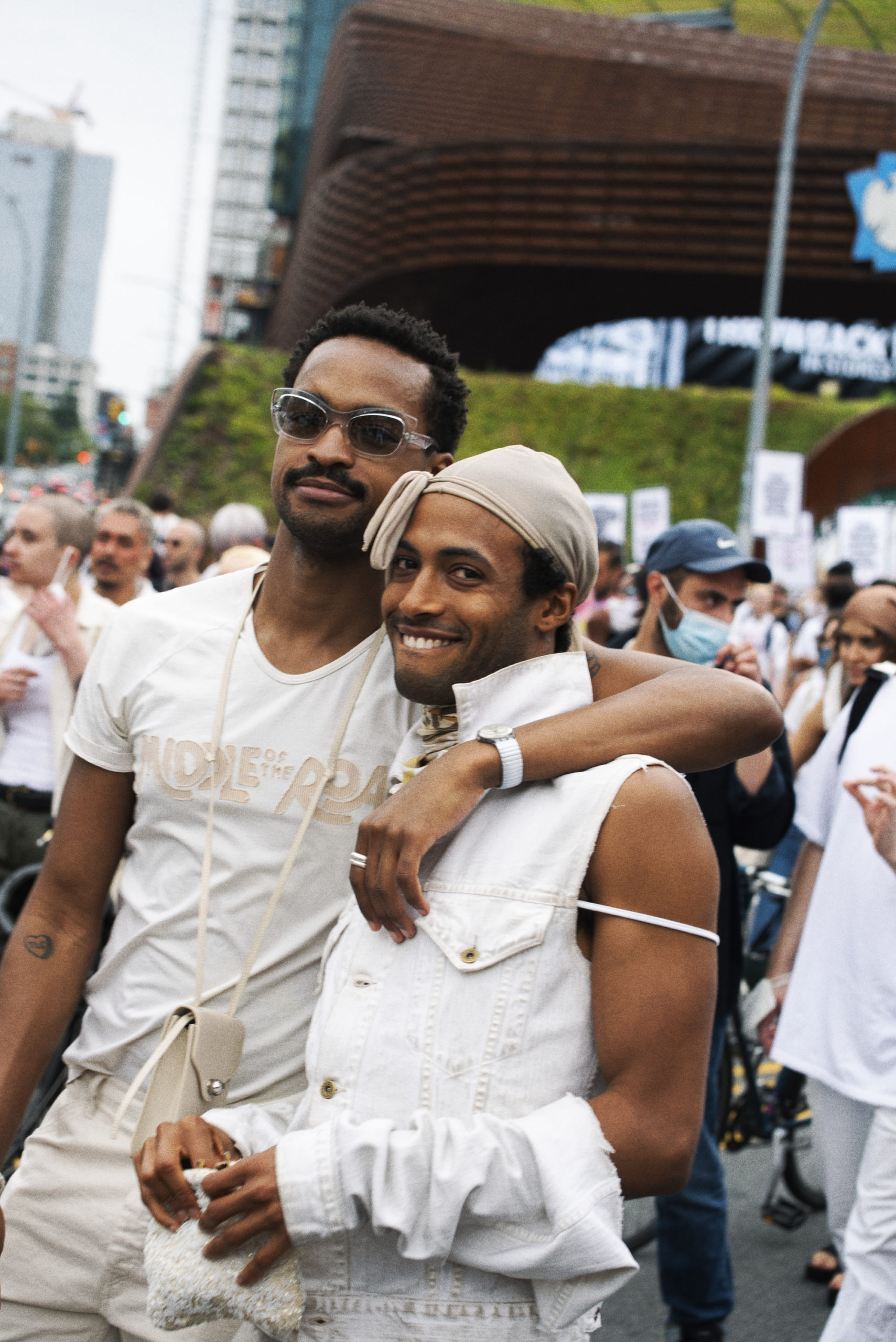
Ian Bradley and Friend.
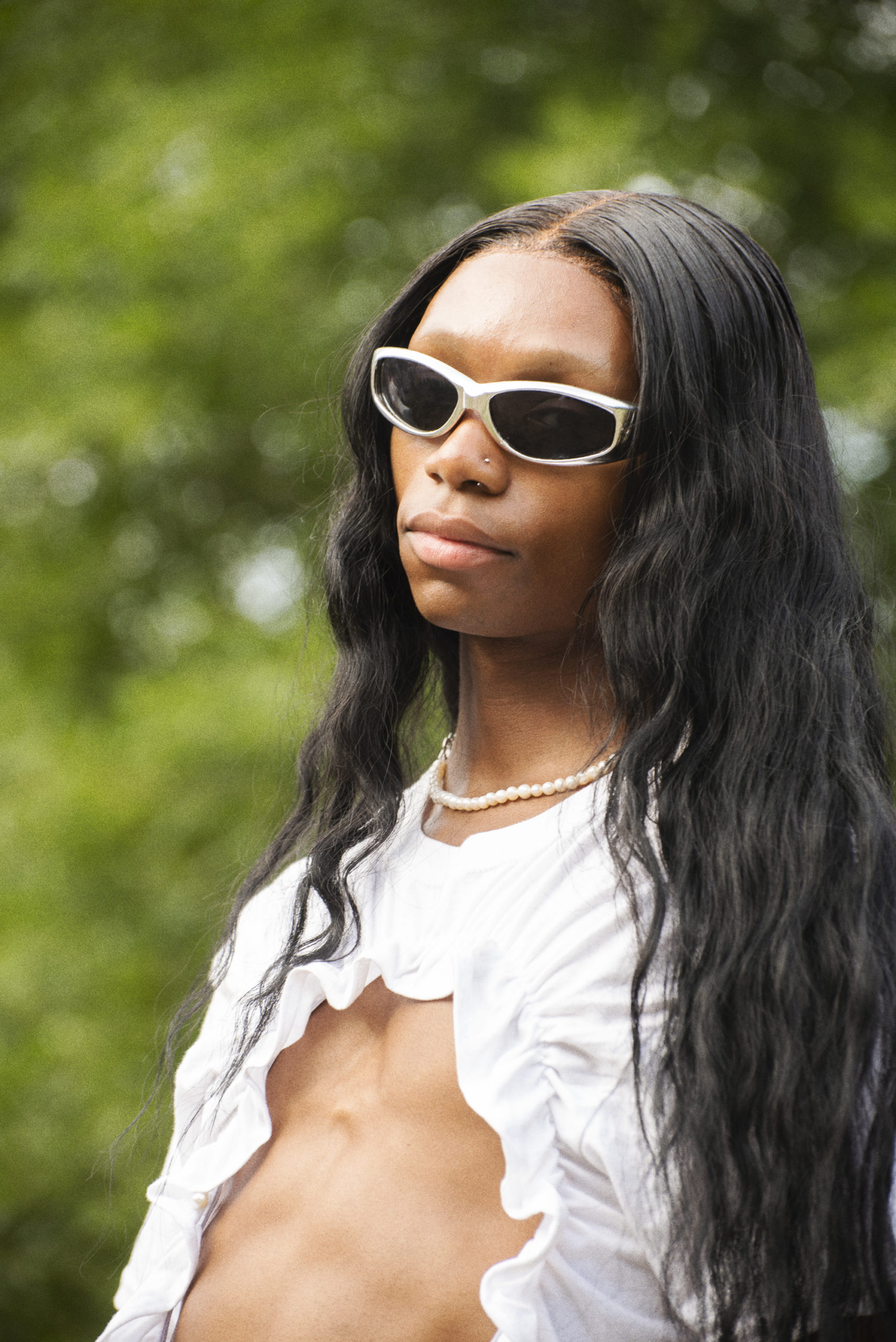
Jordan.

